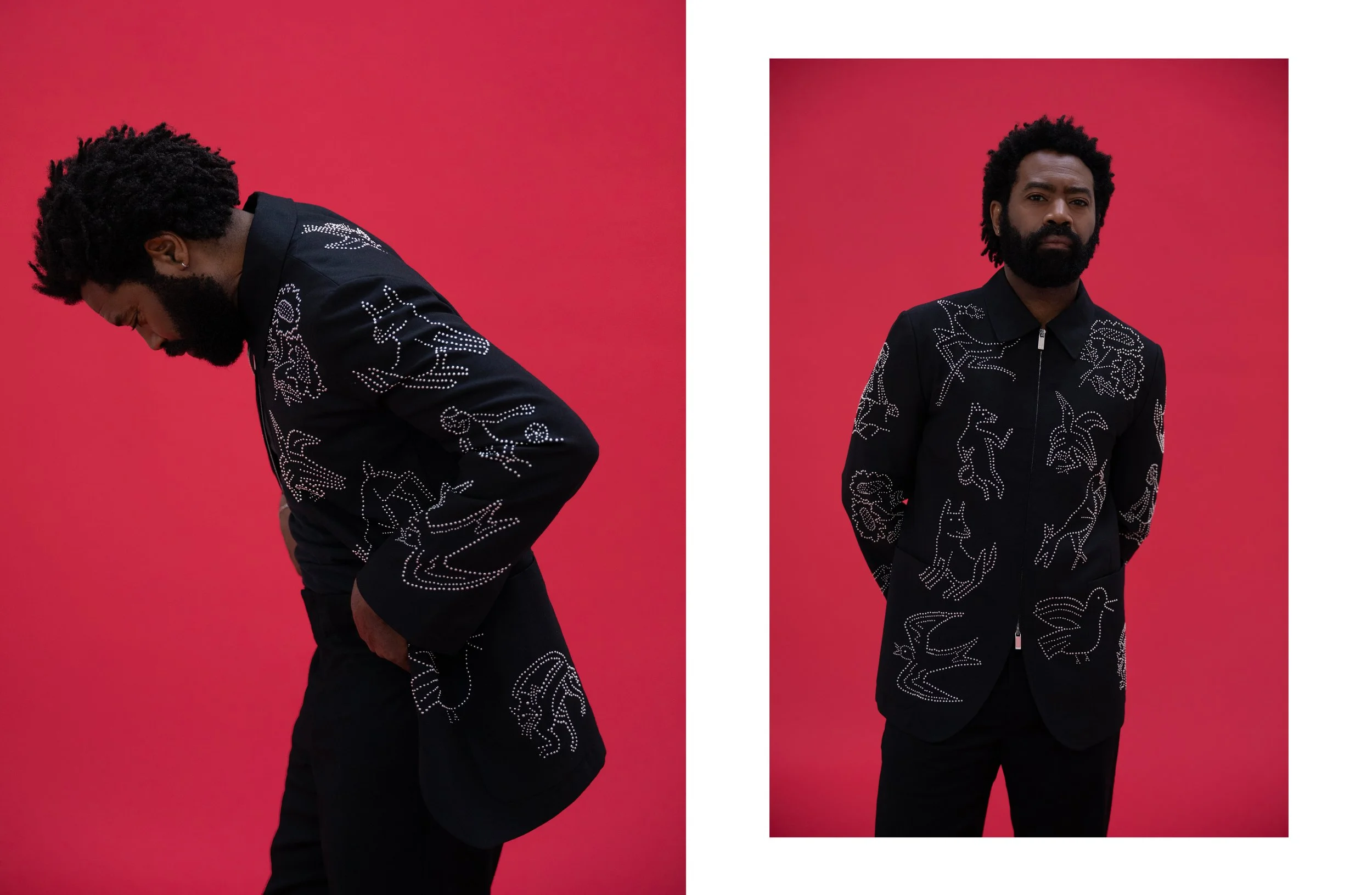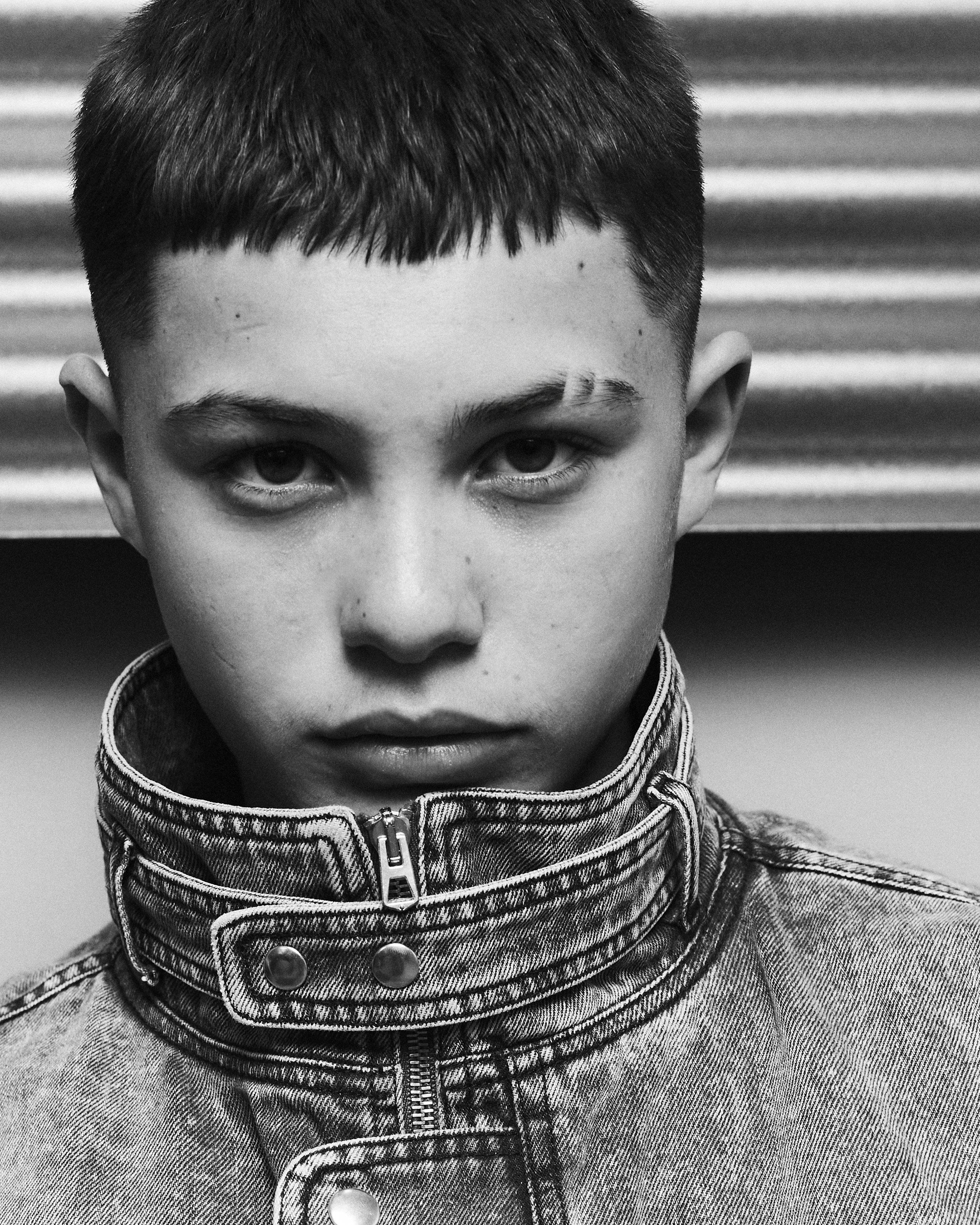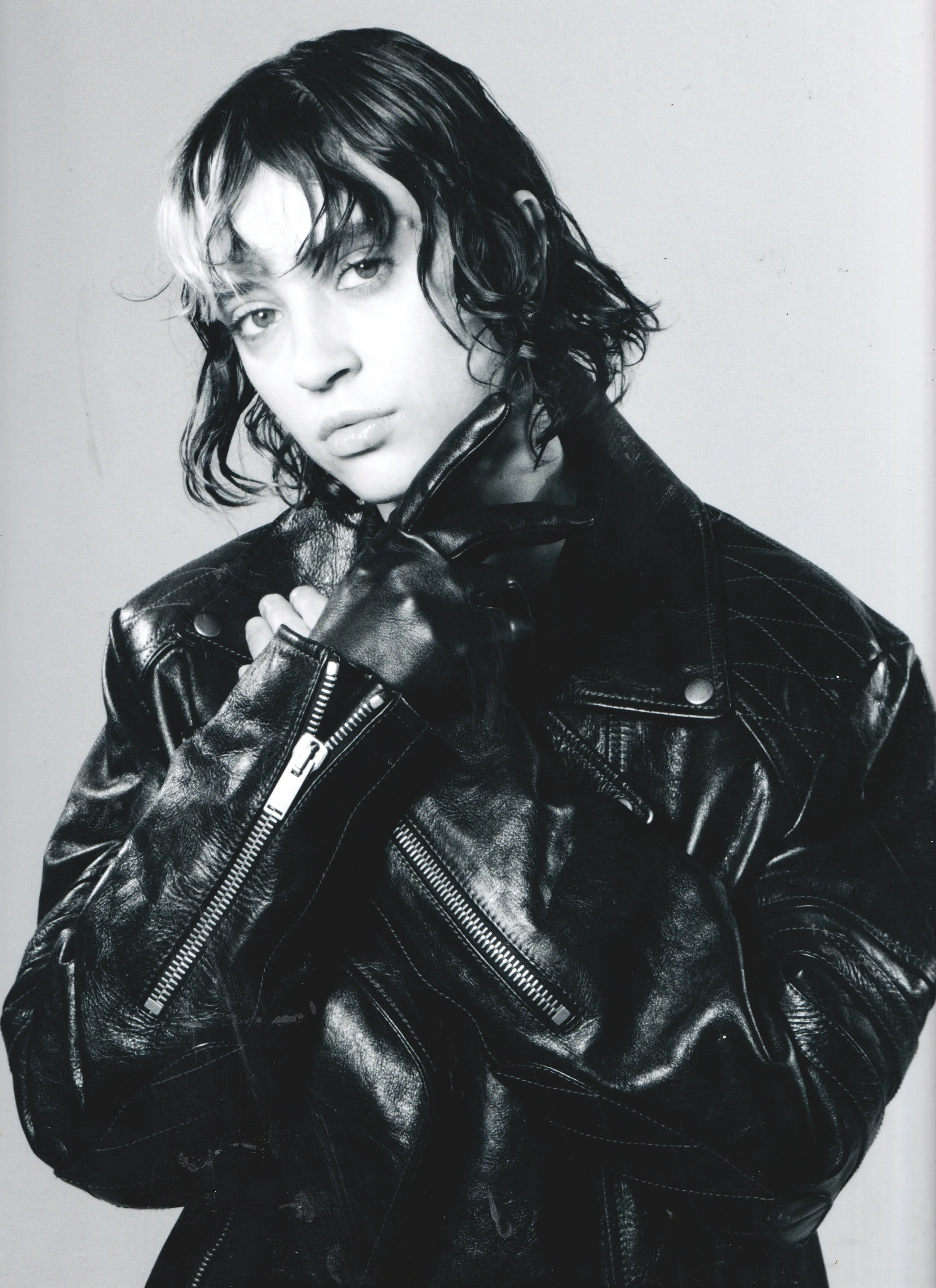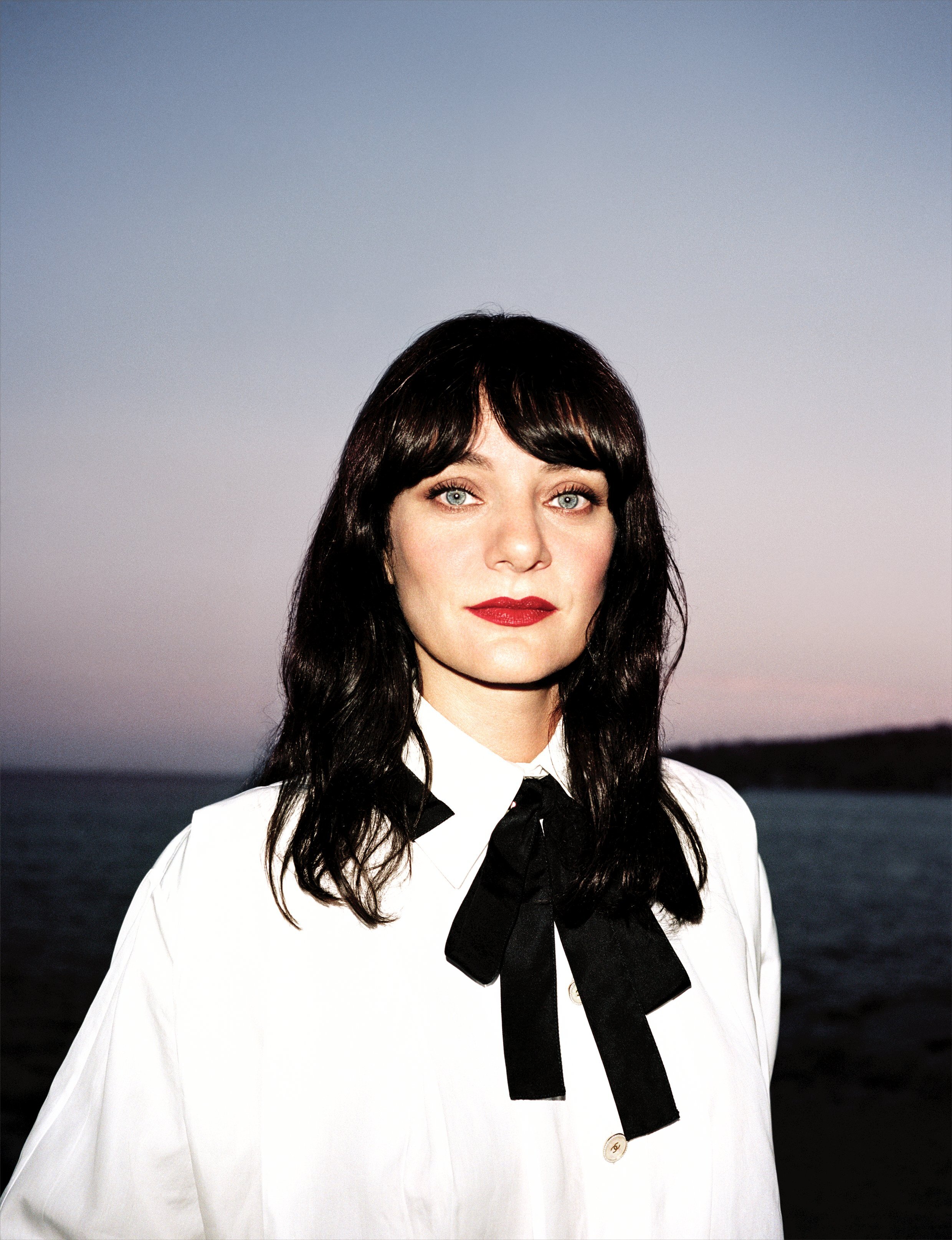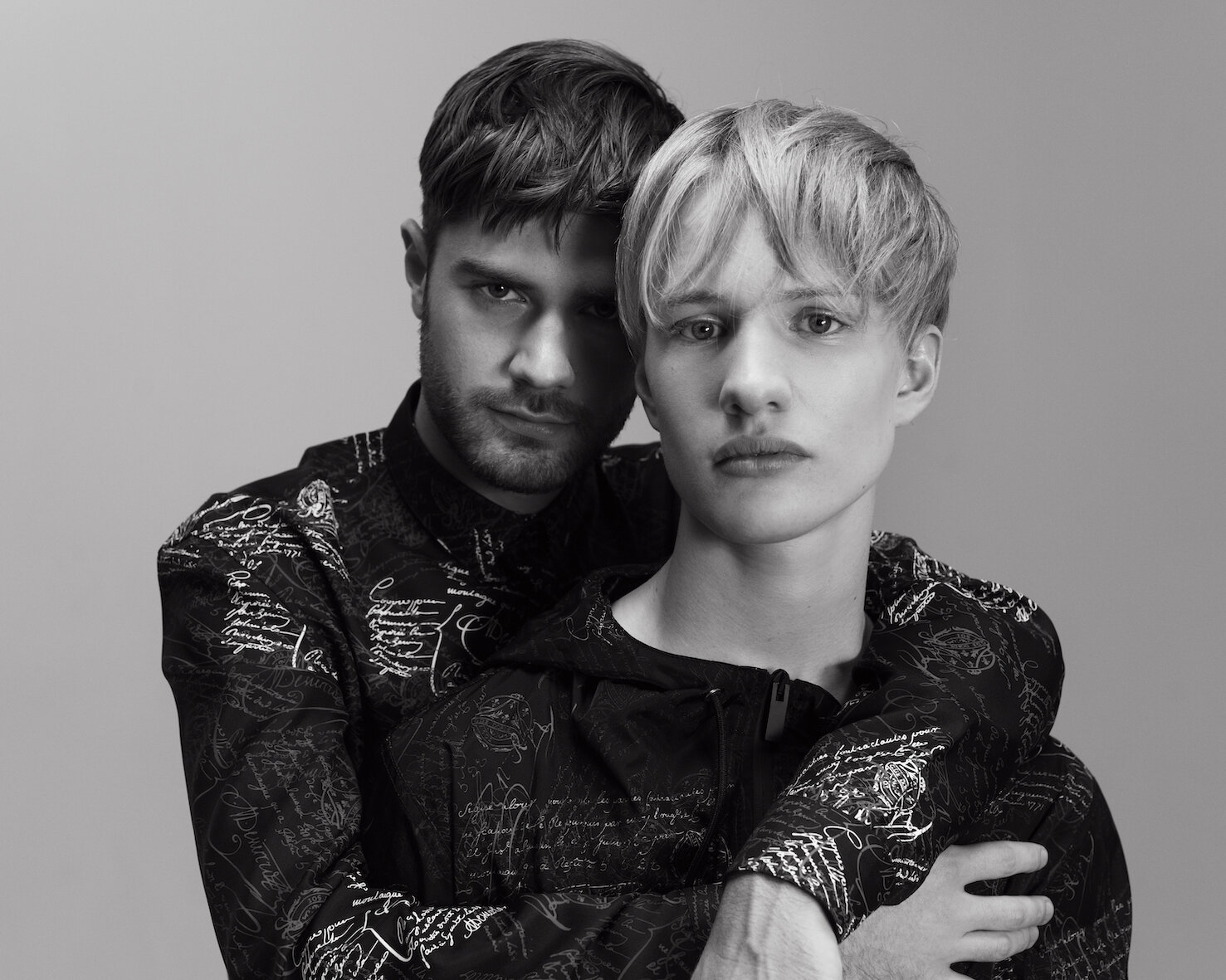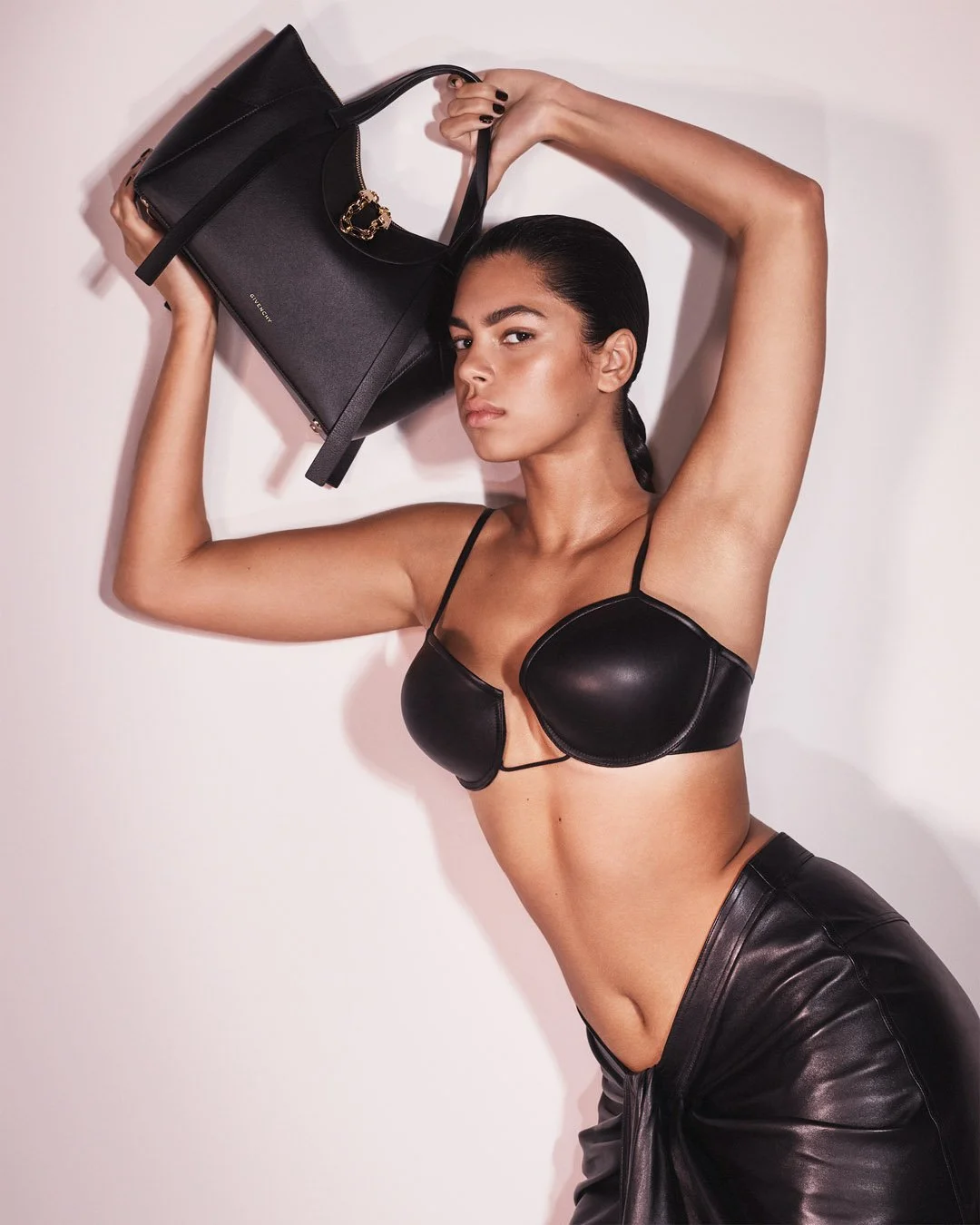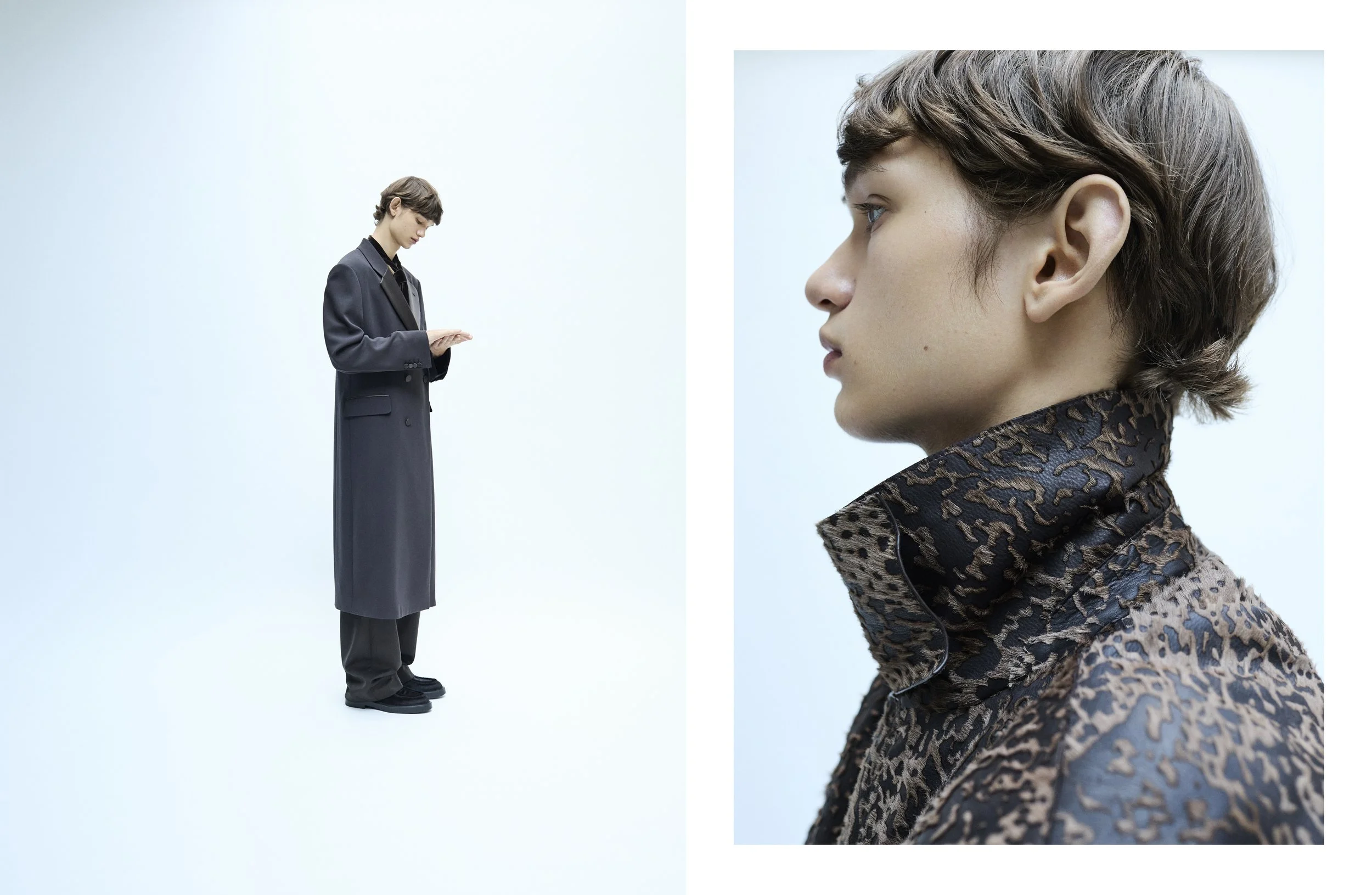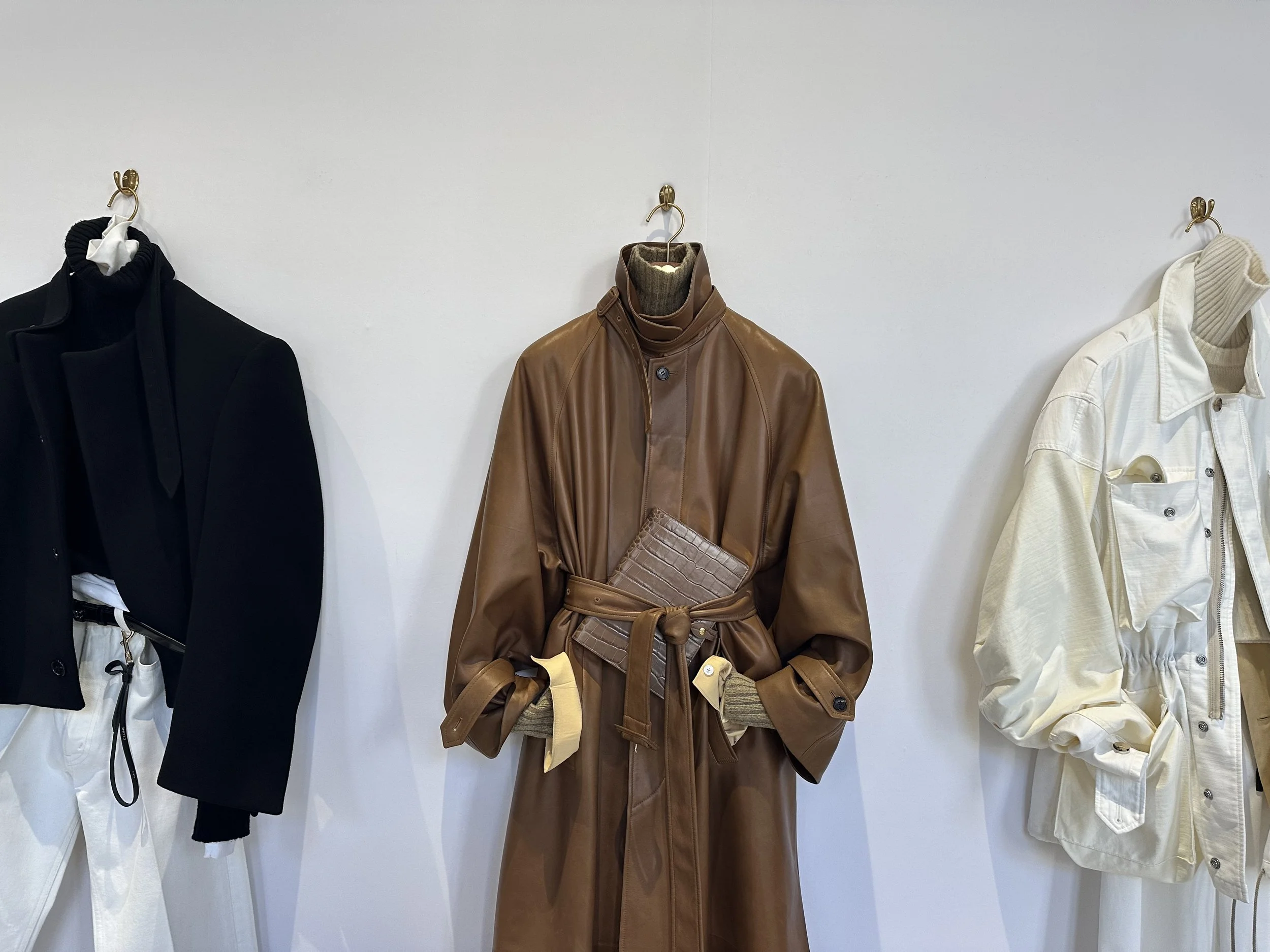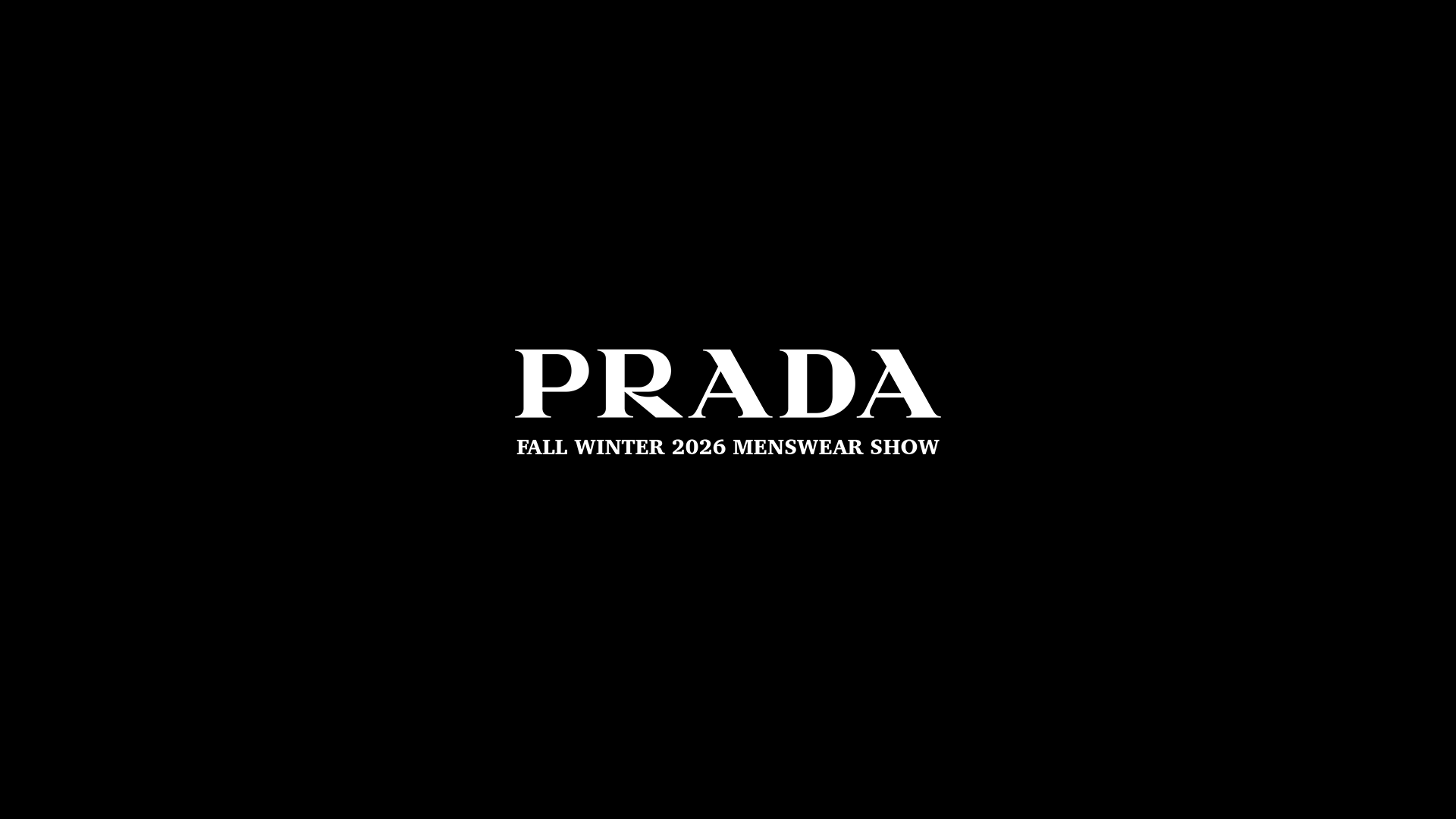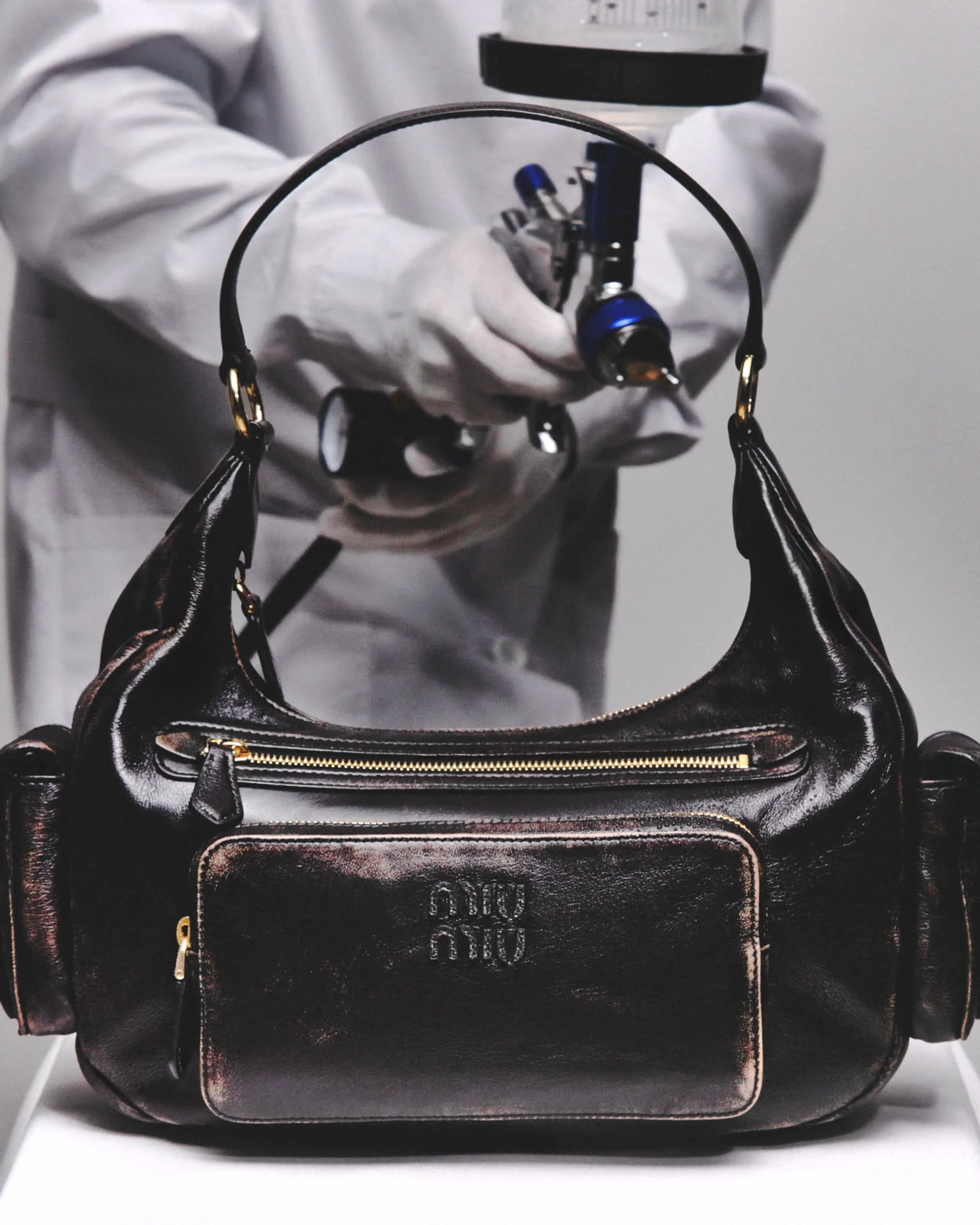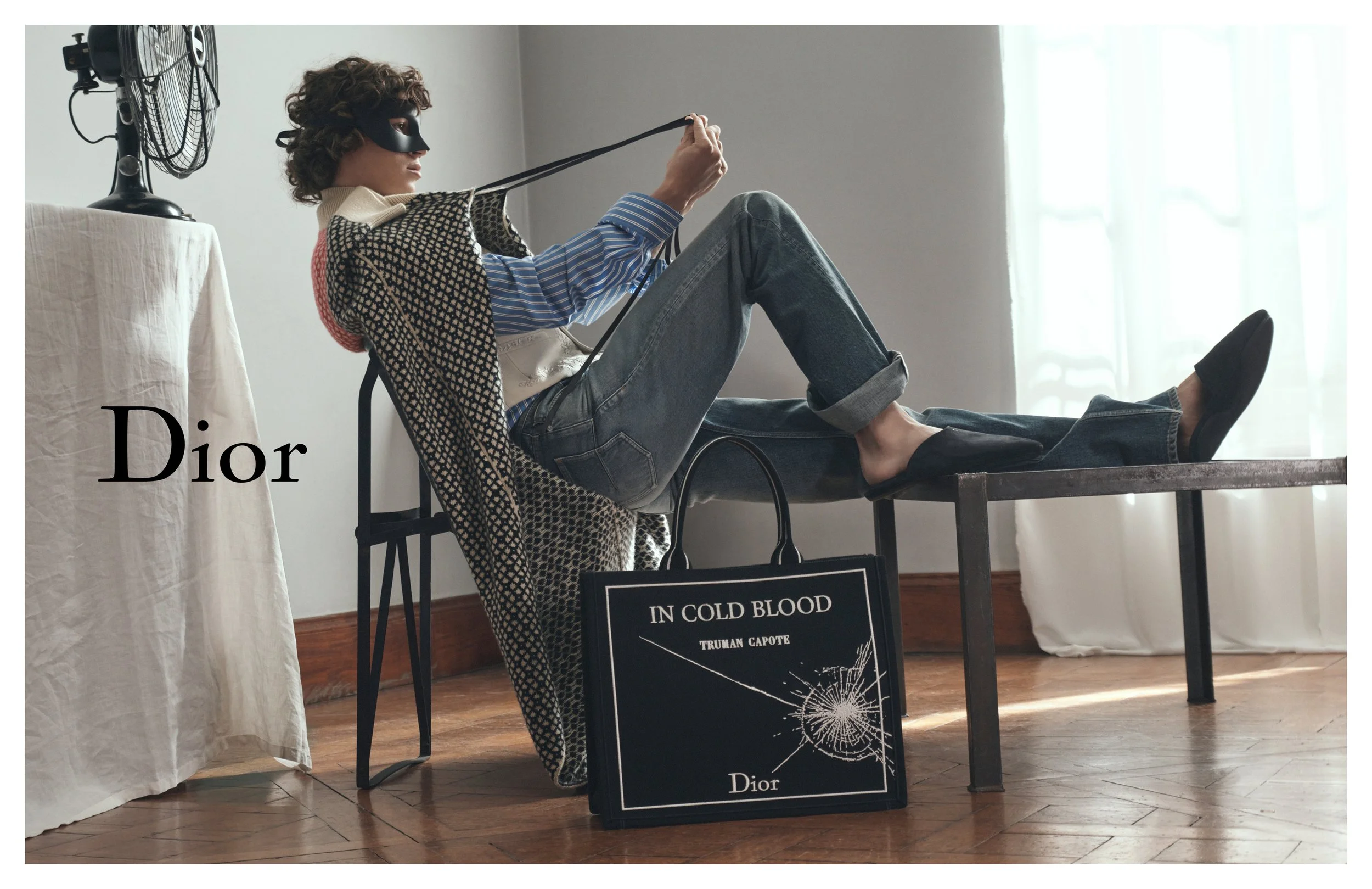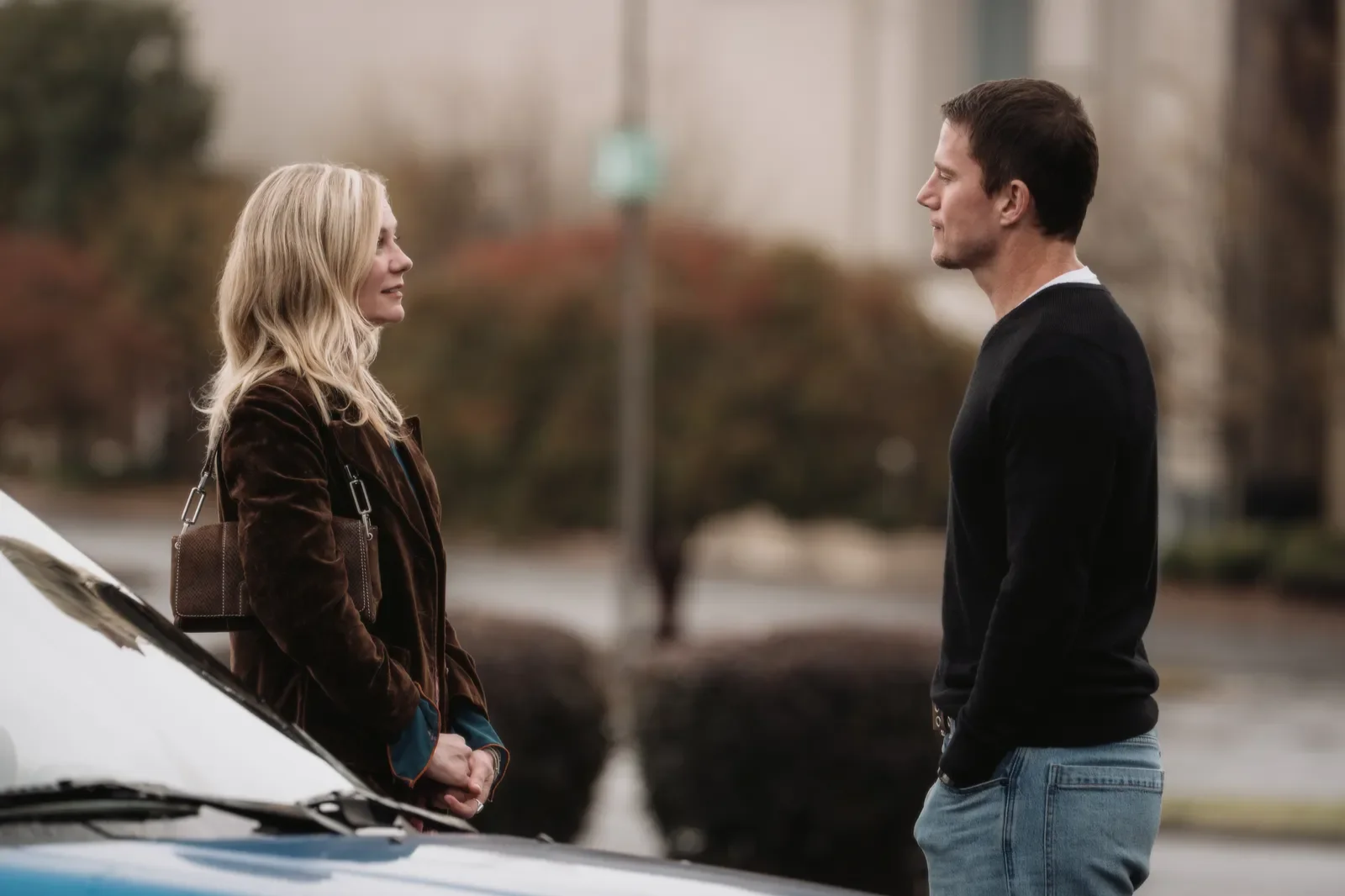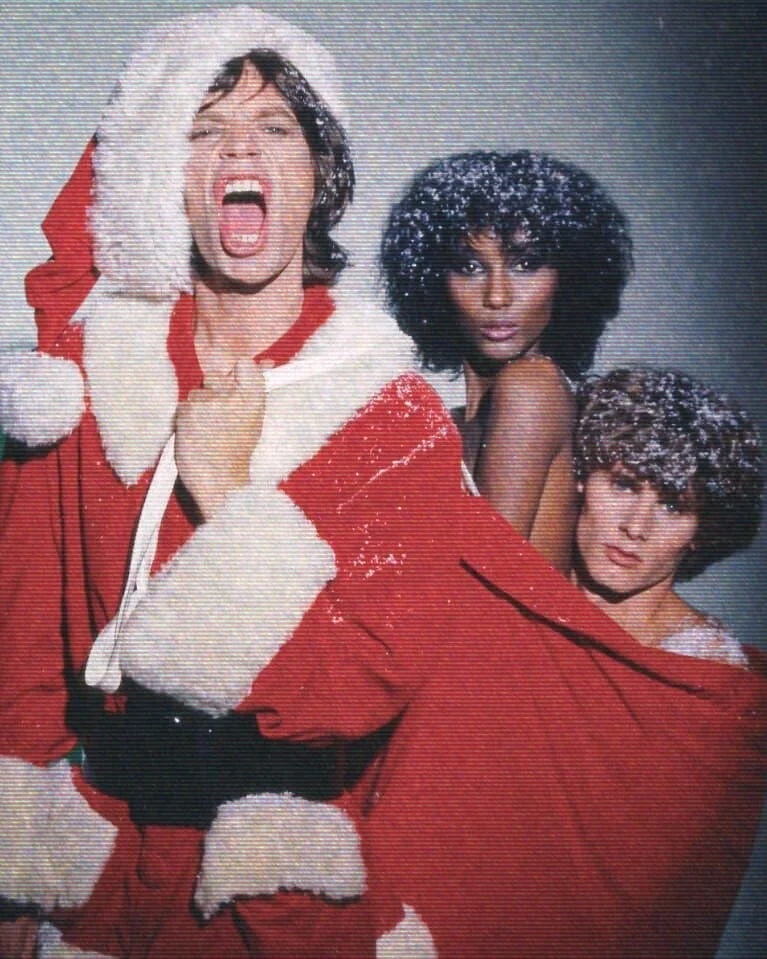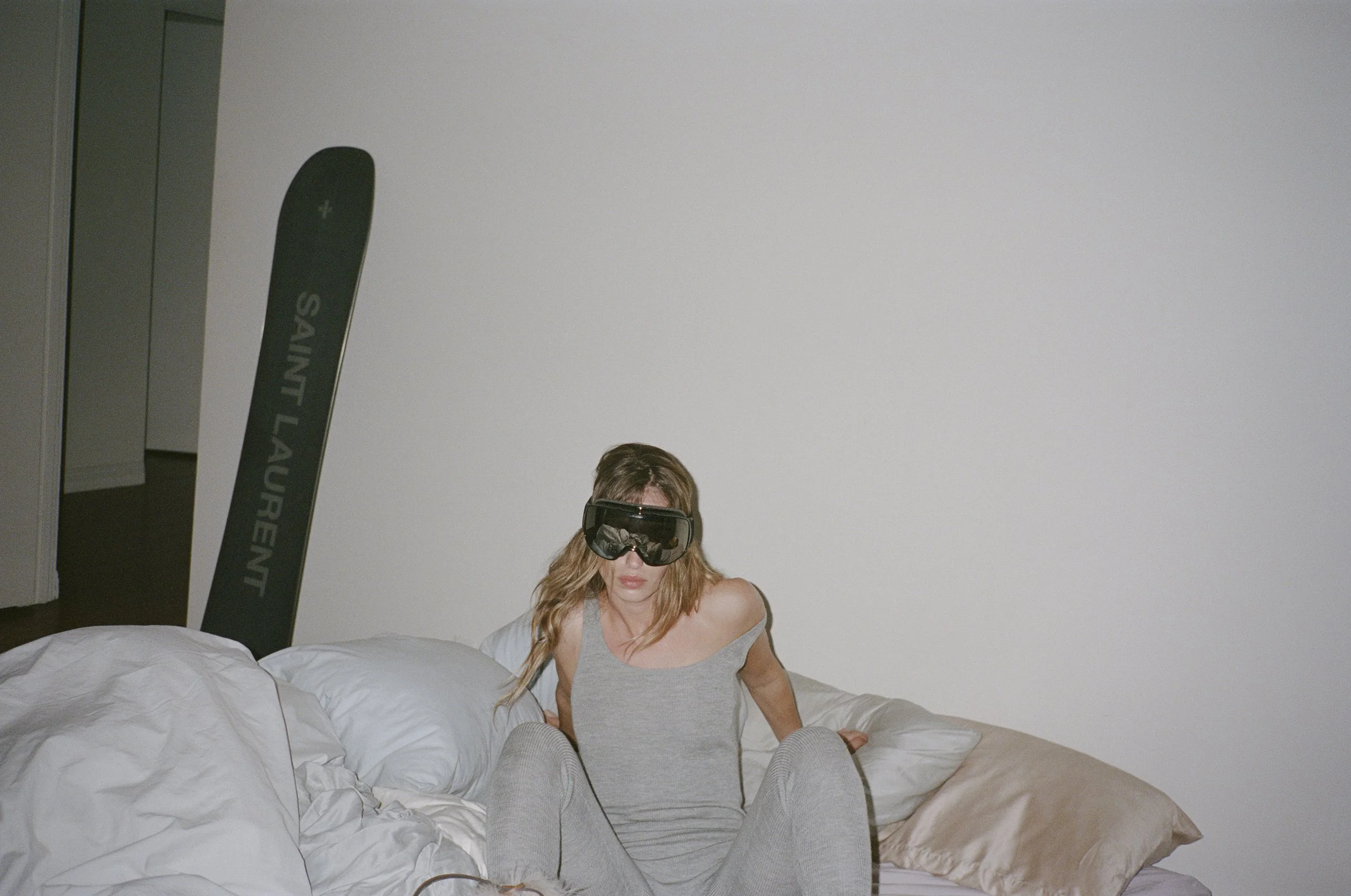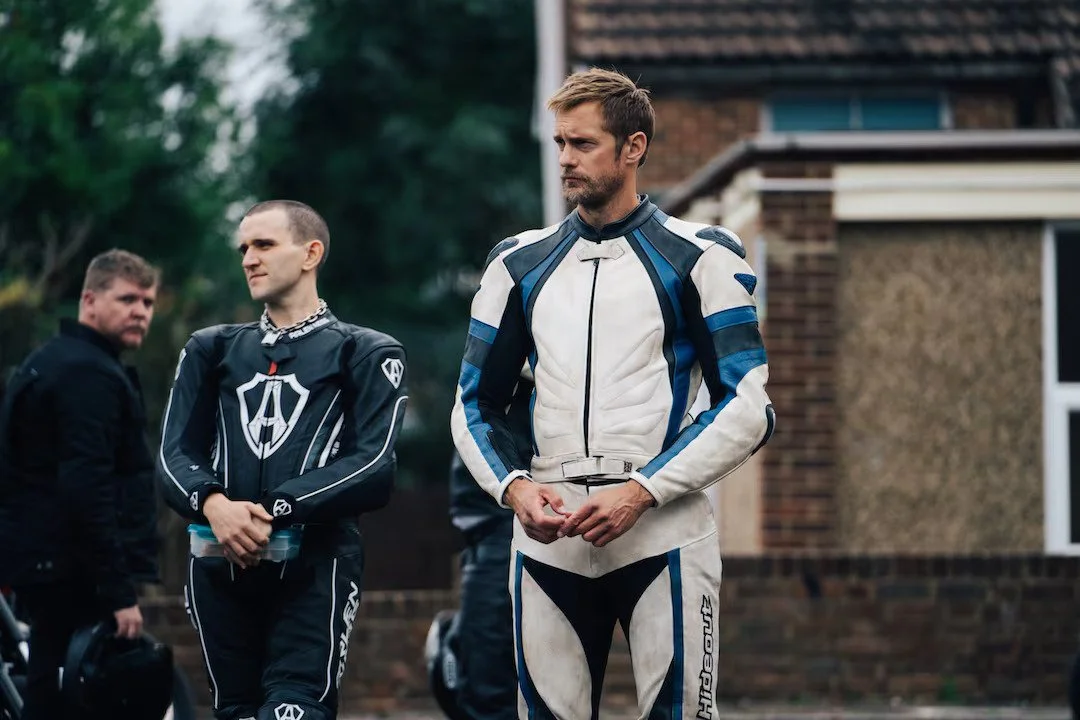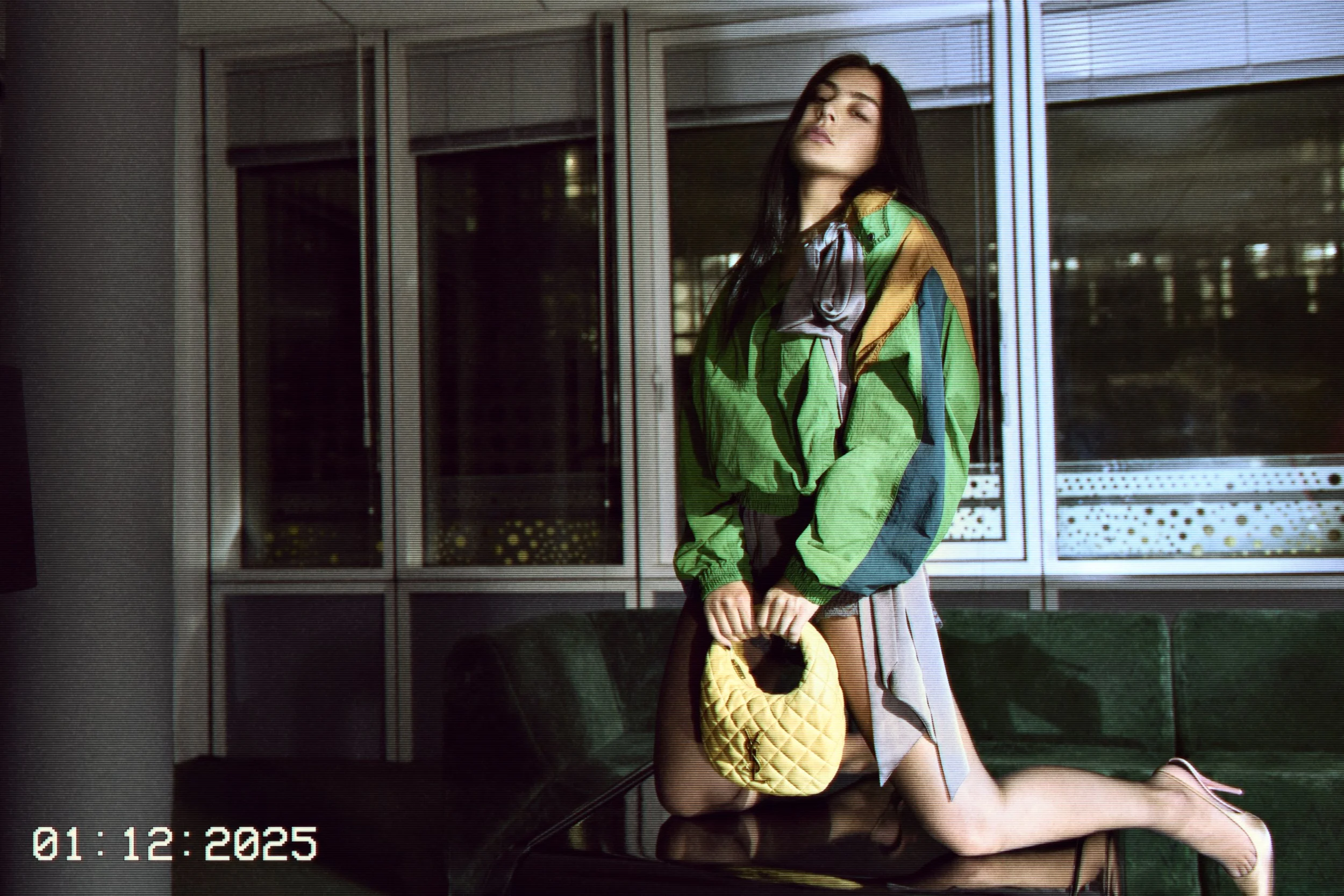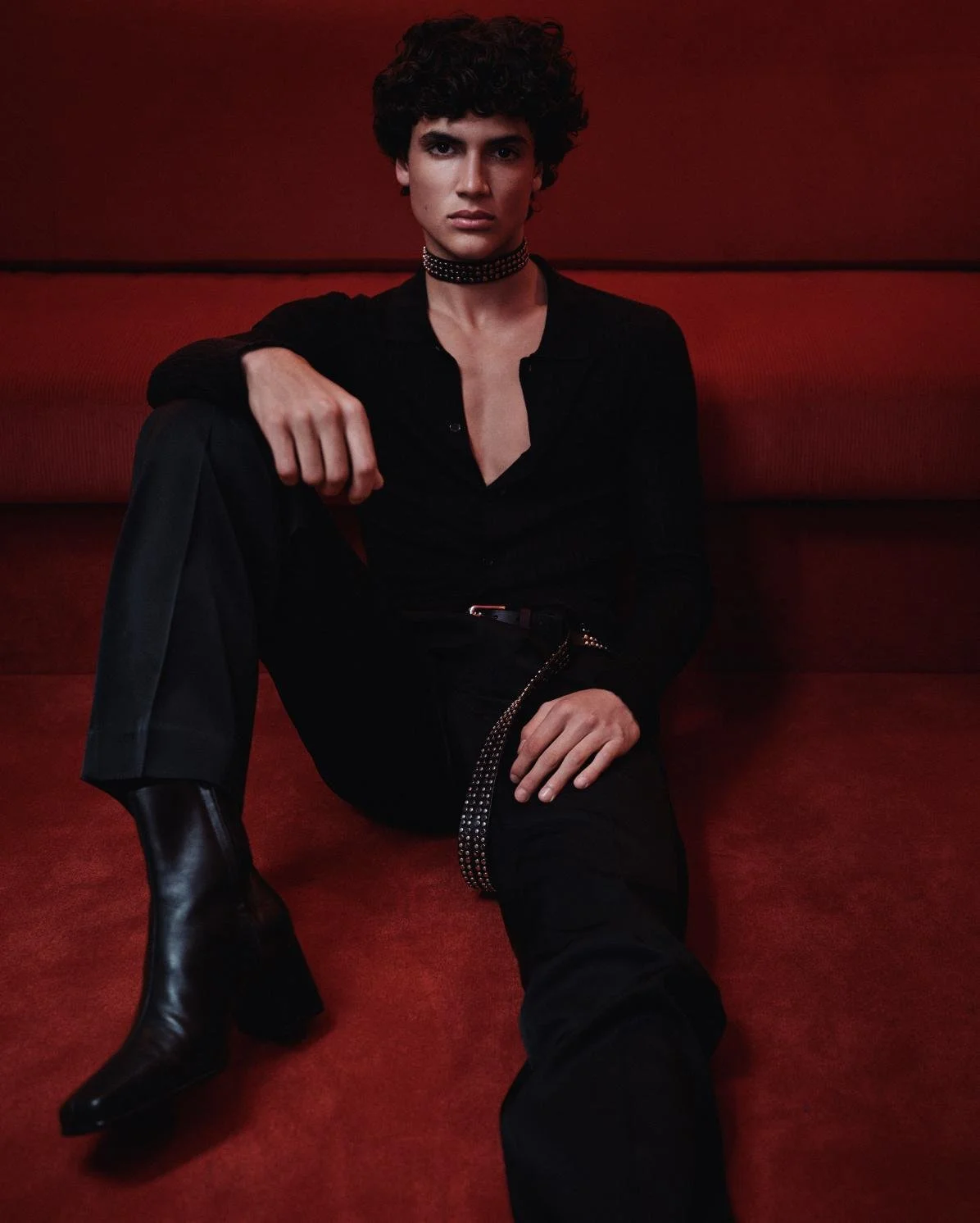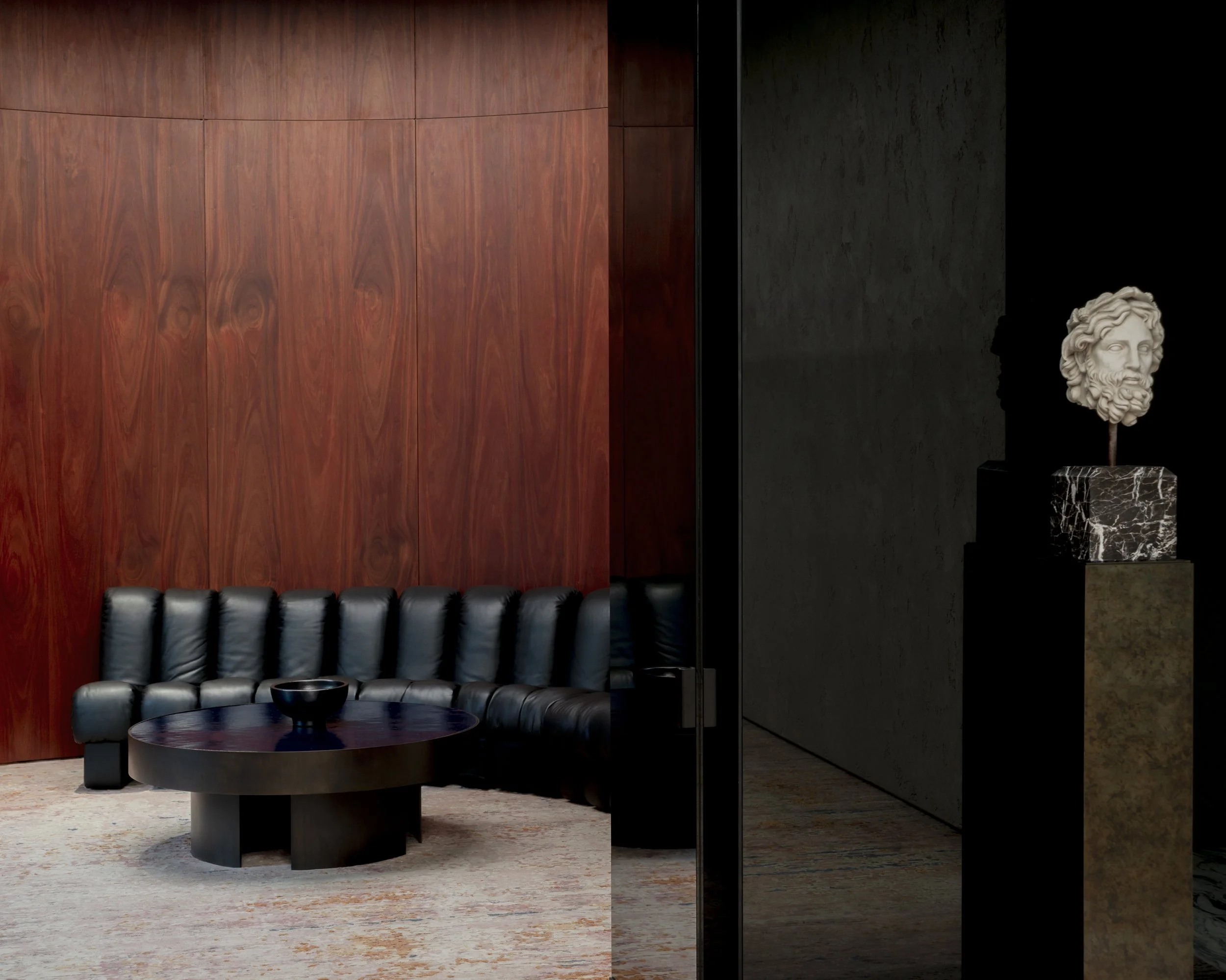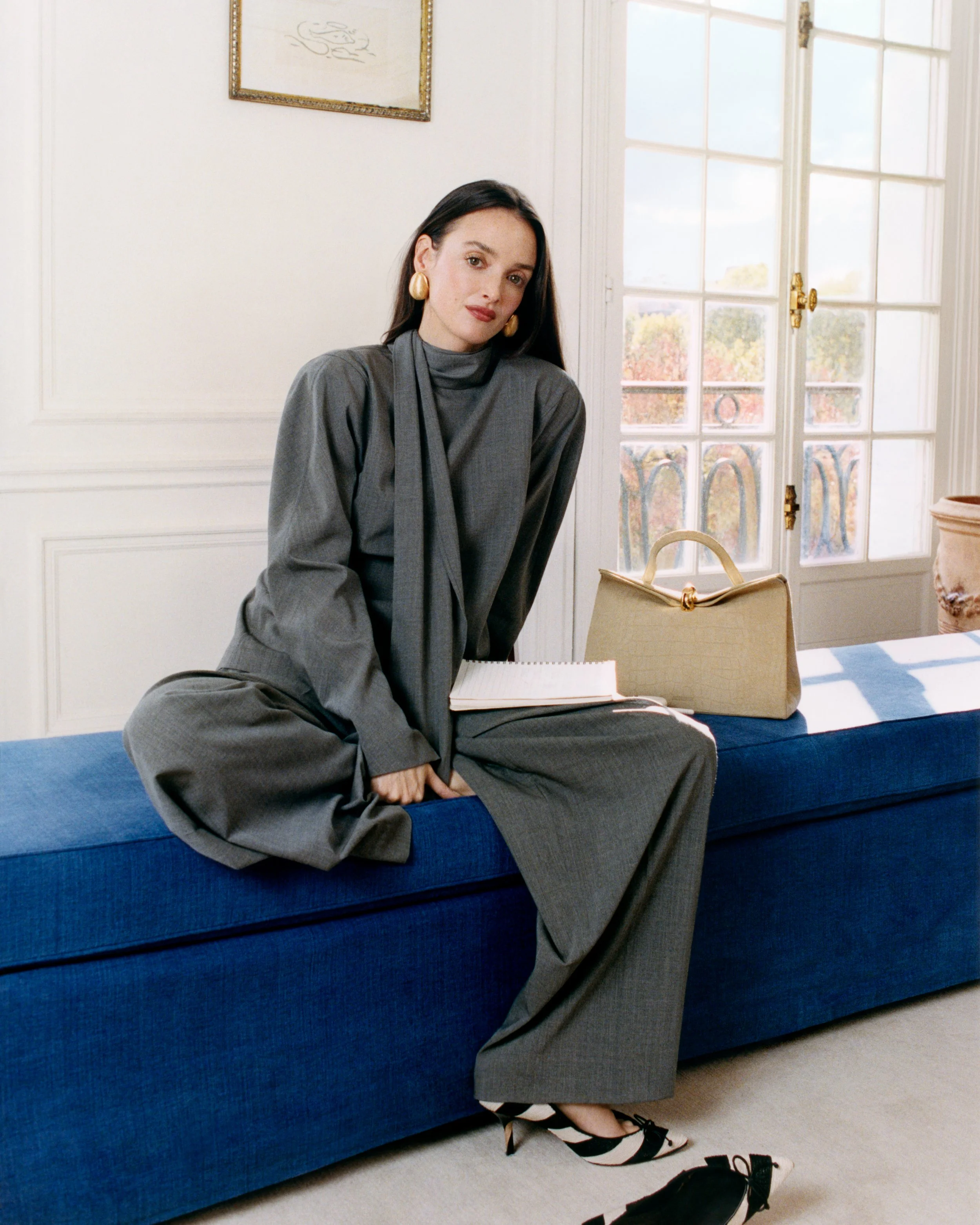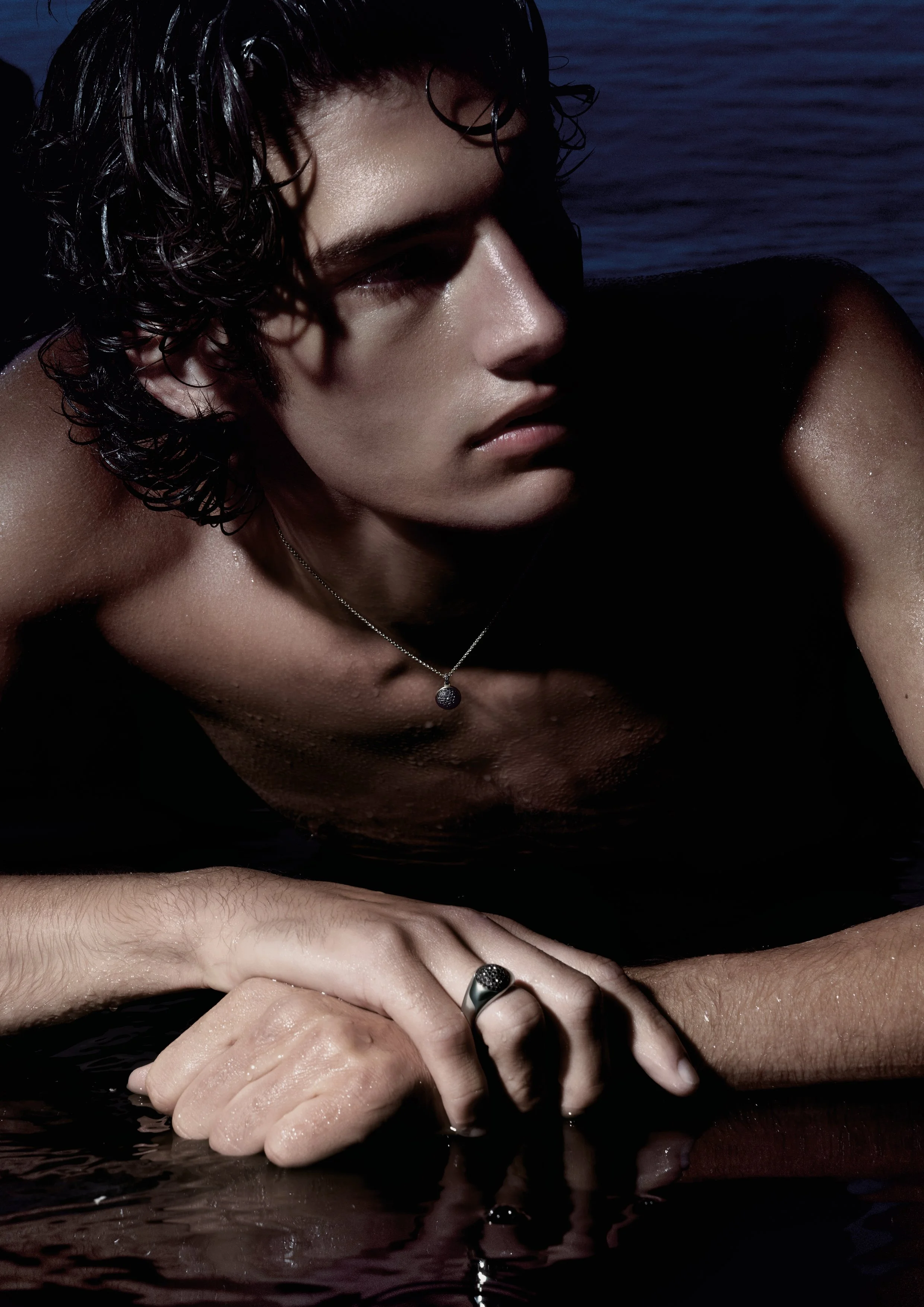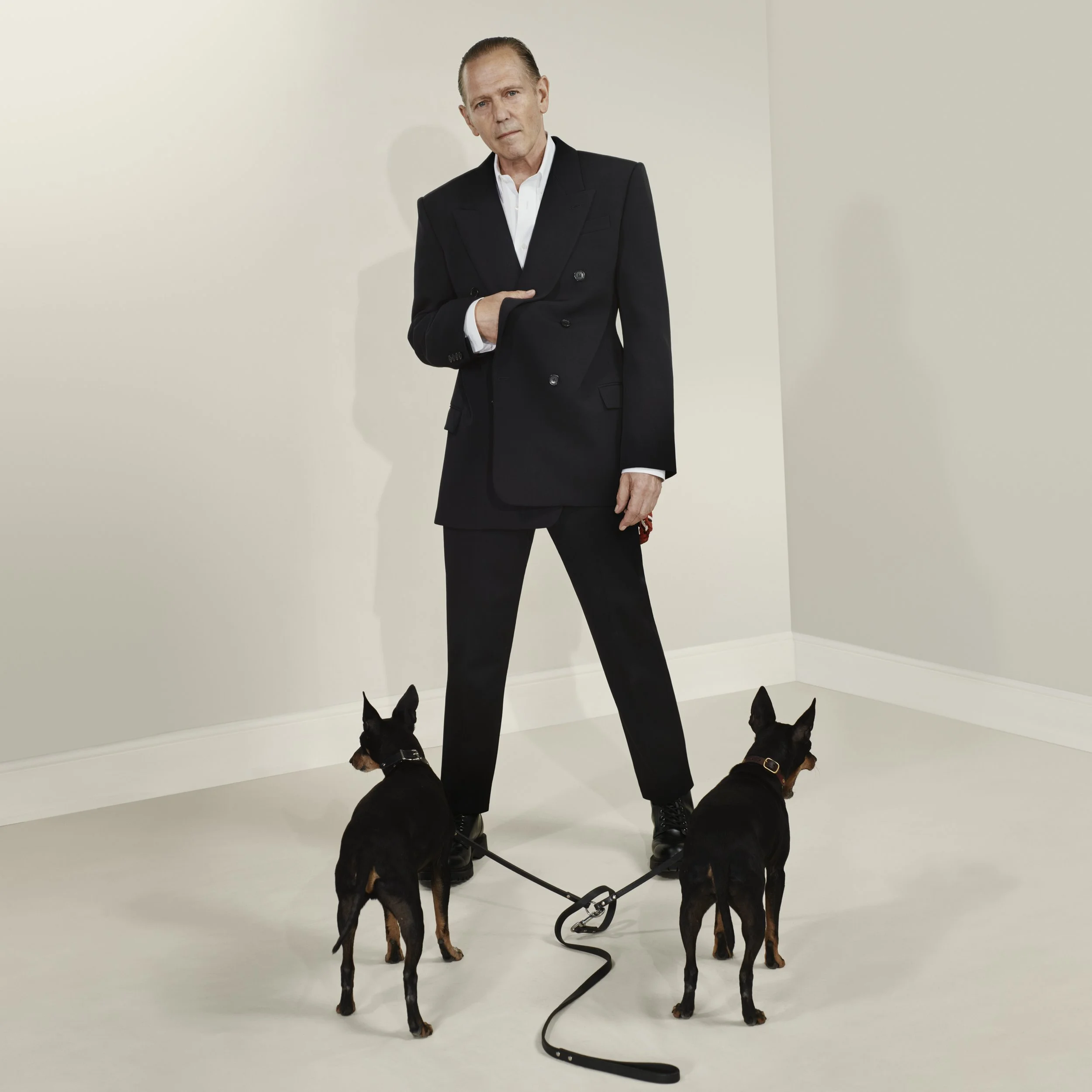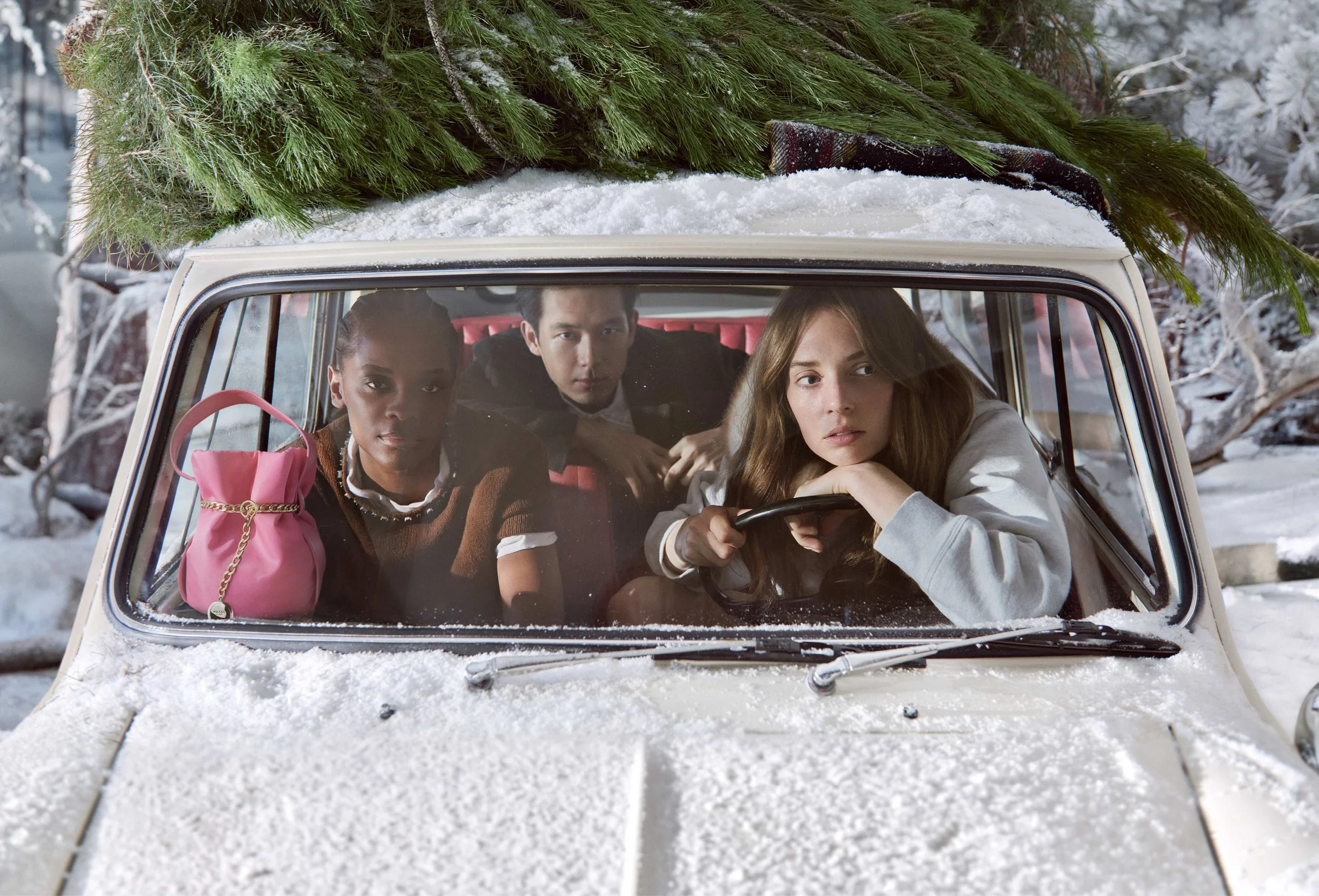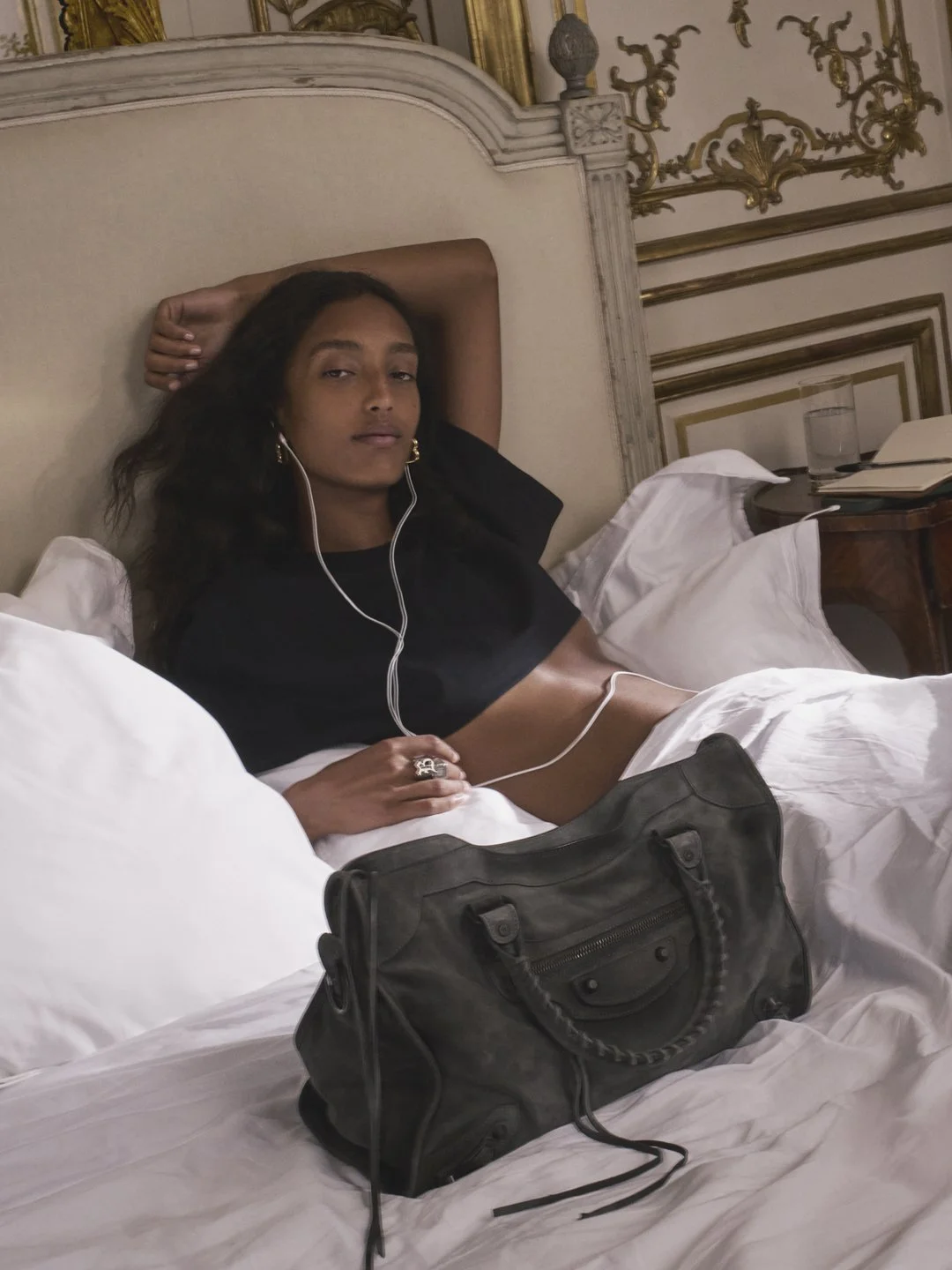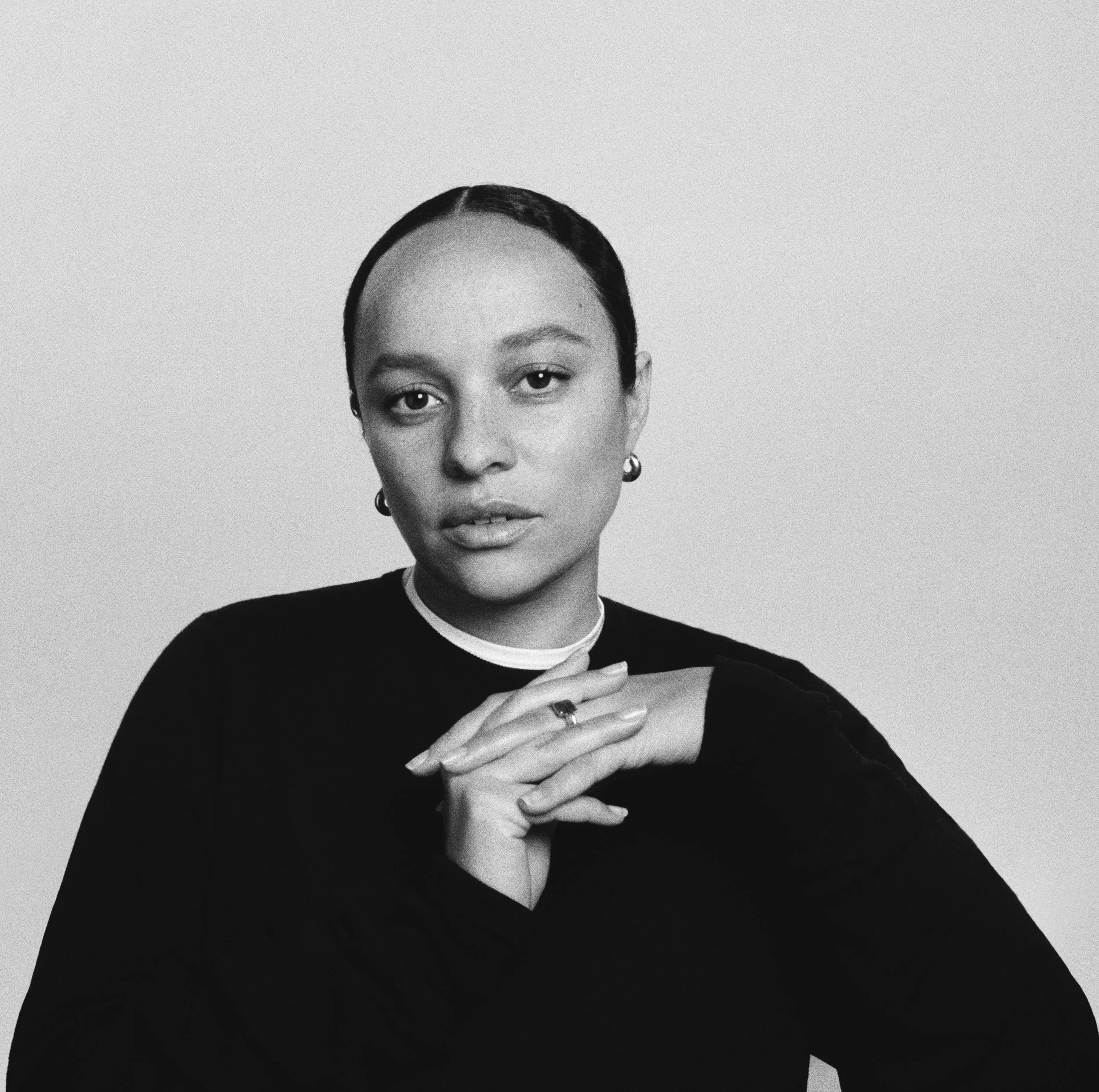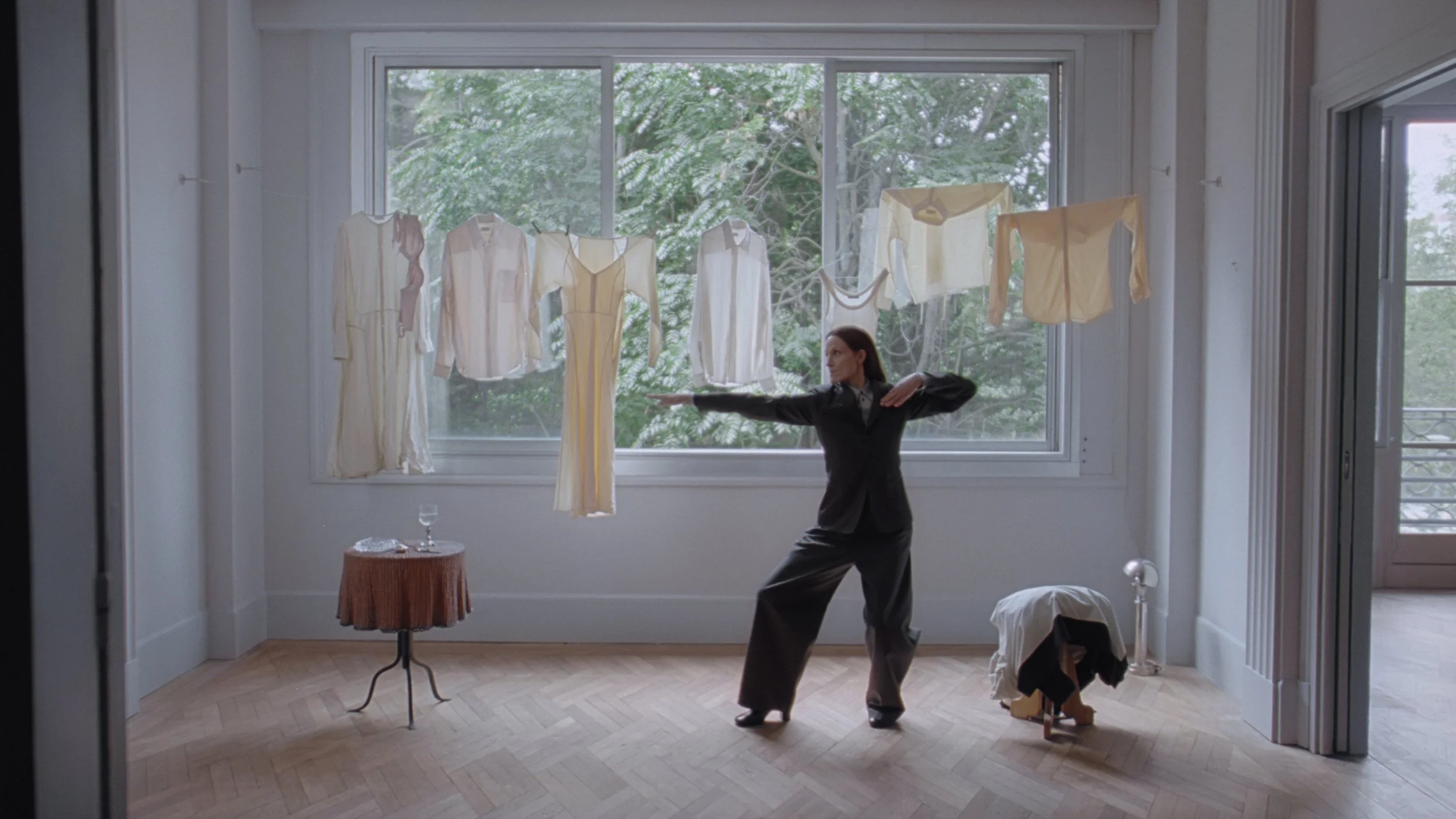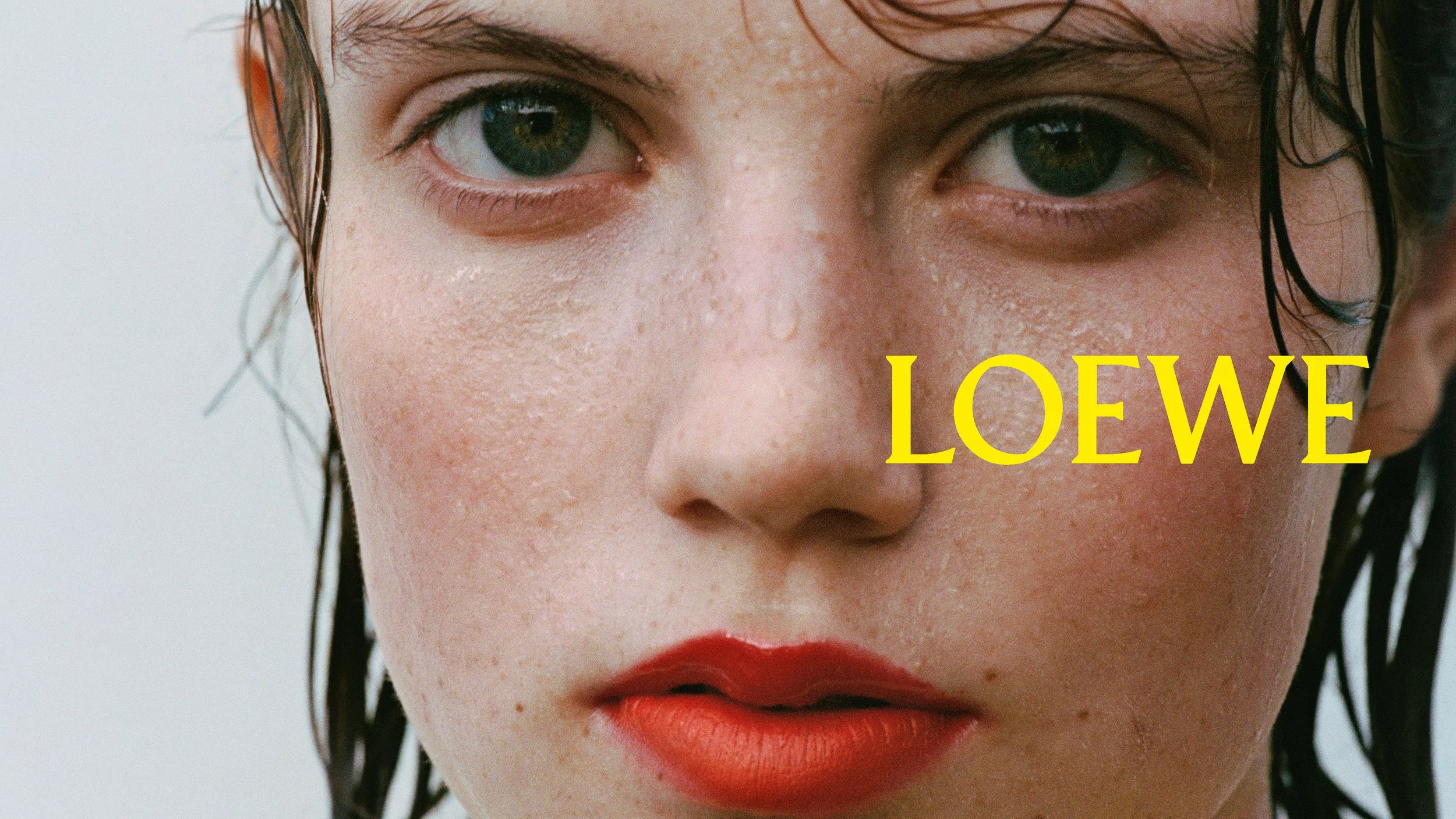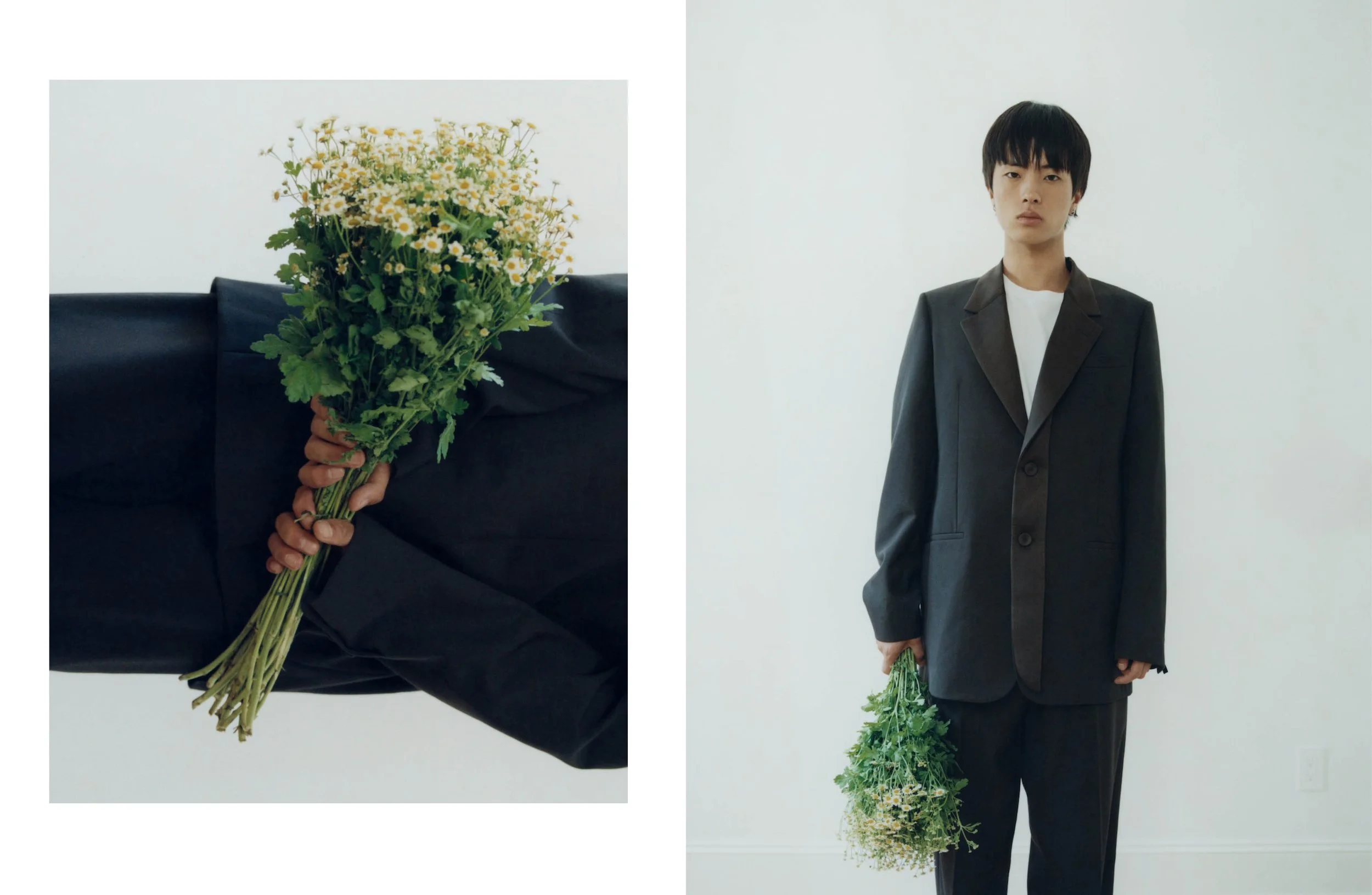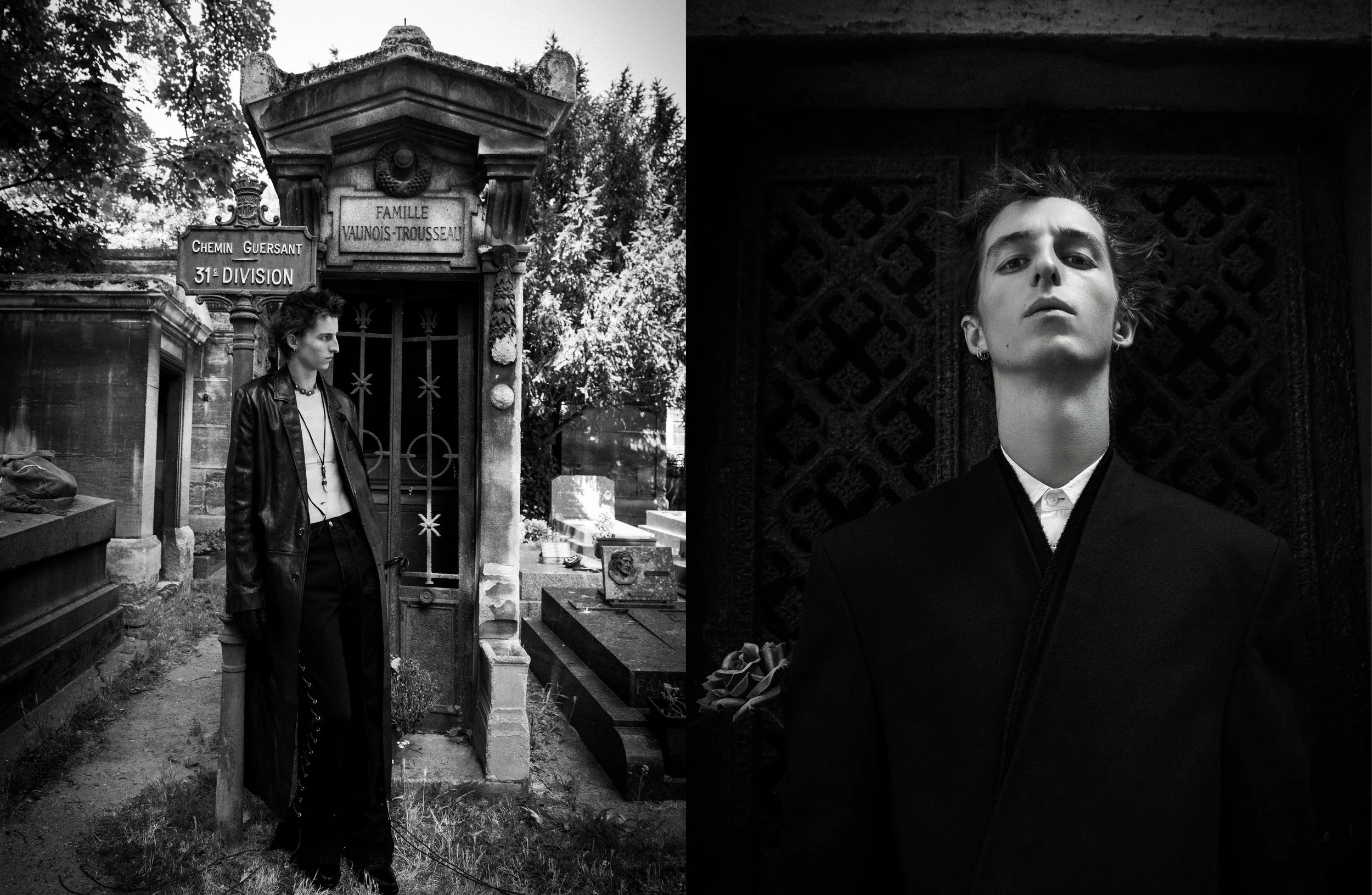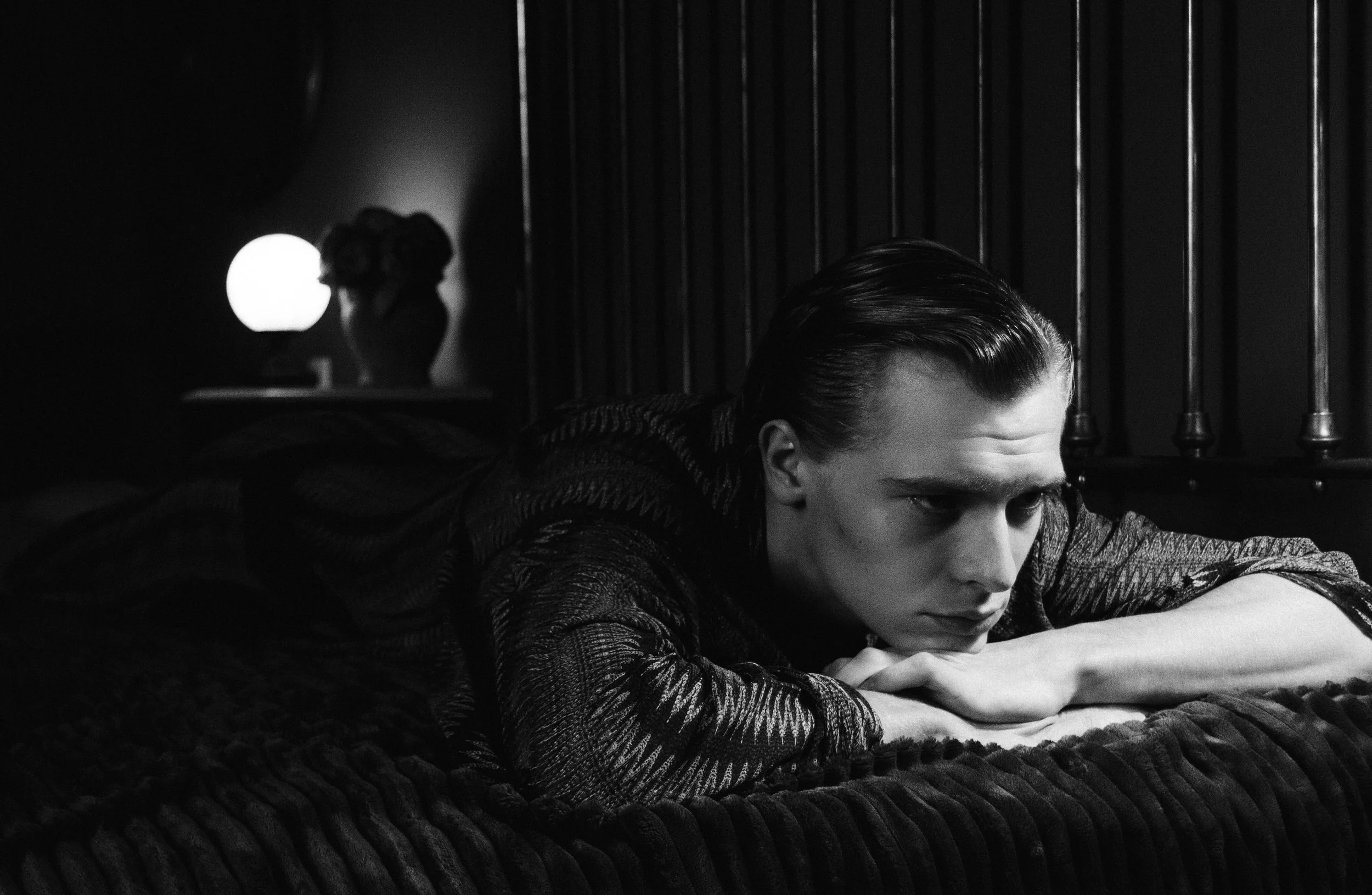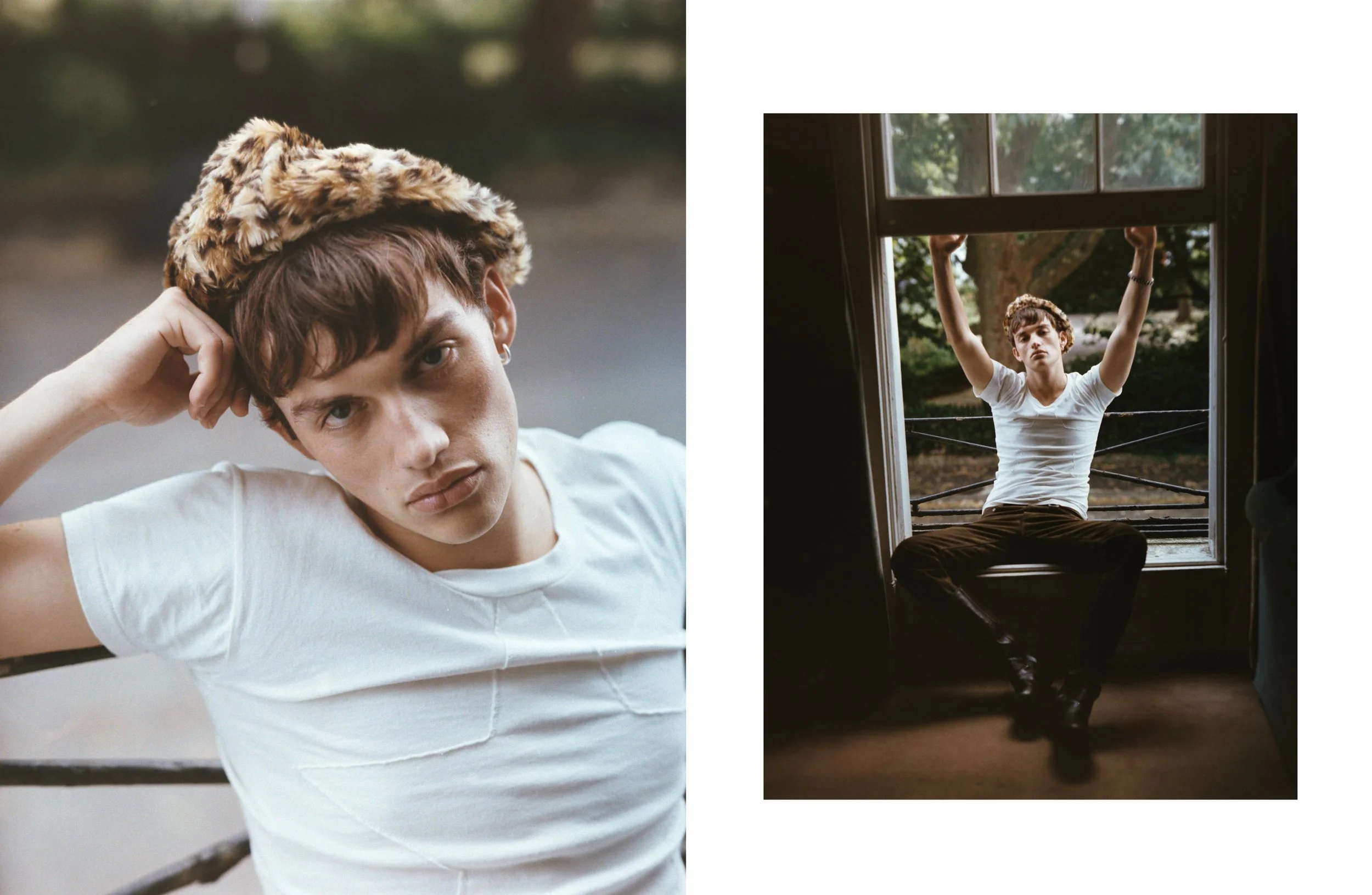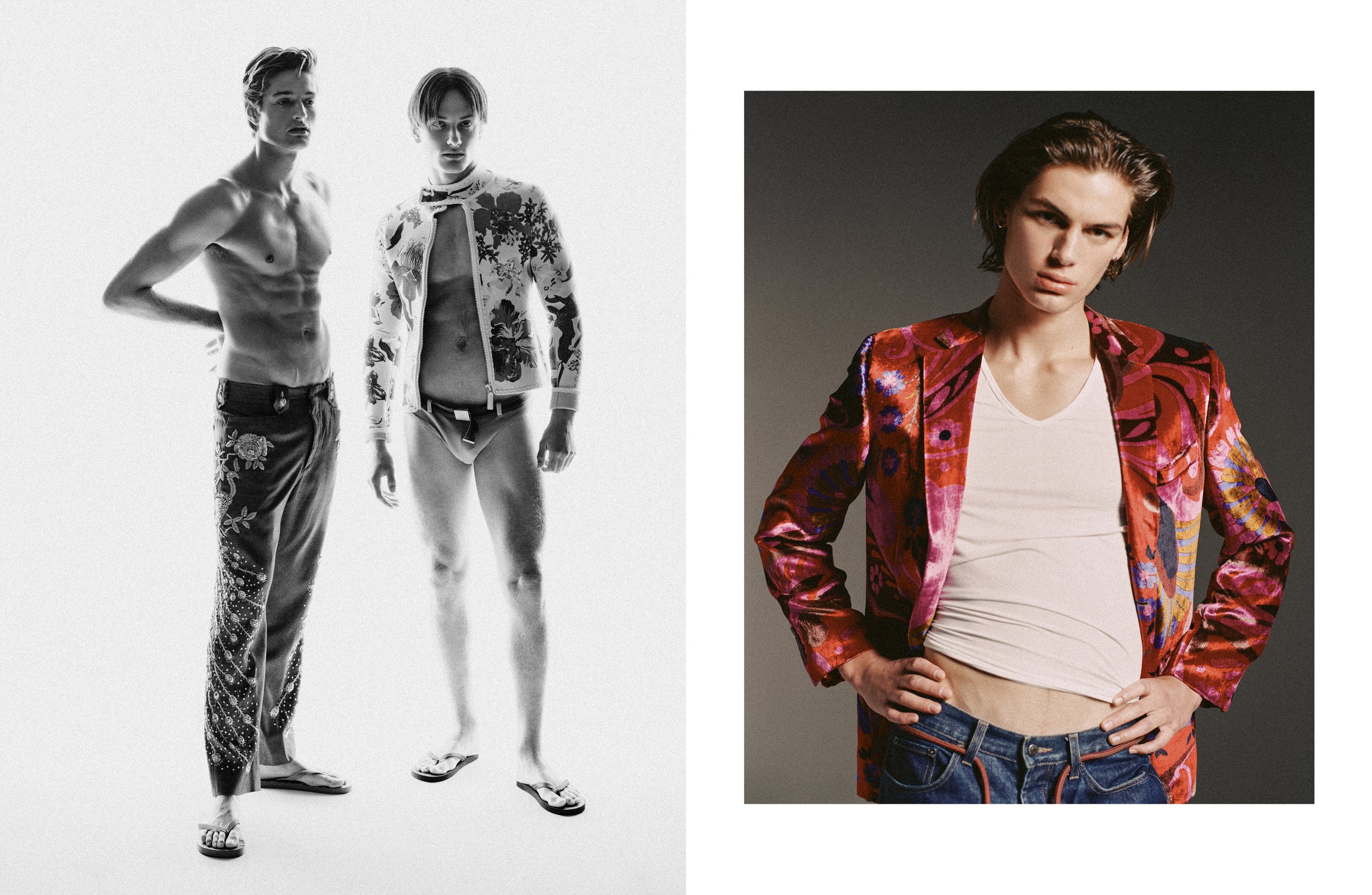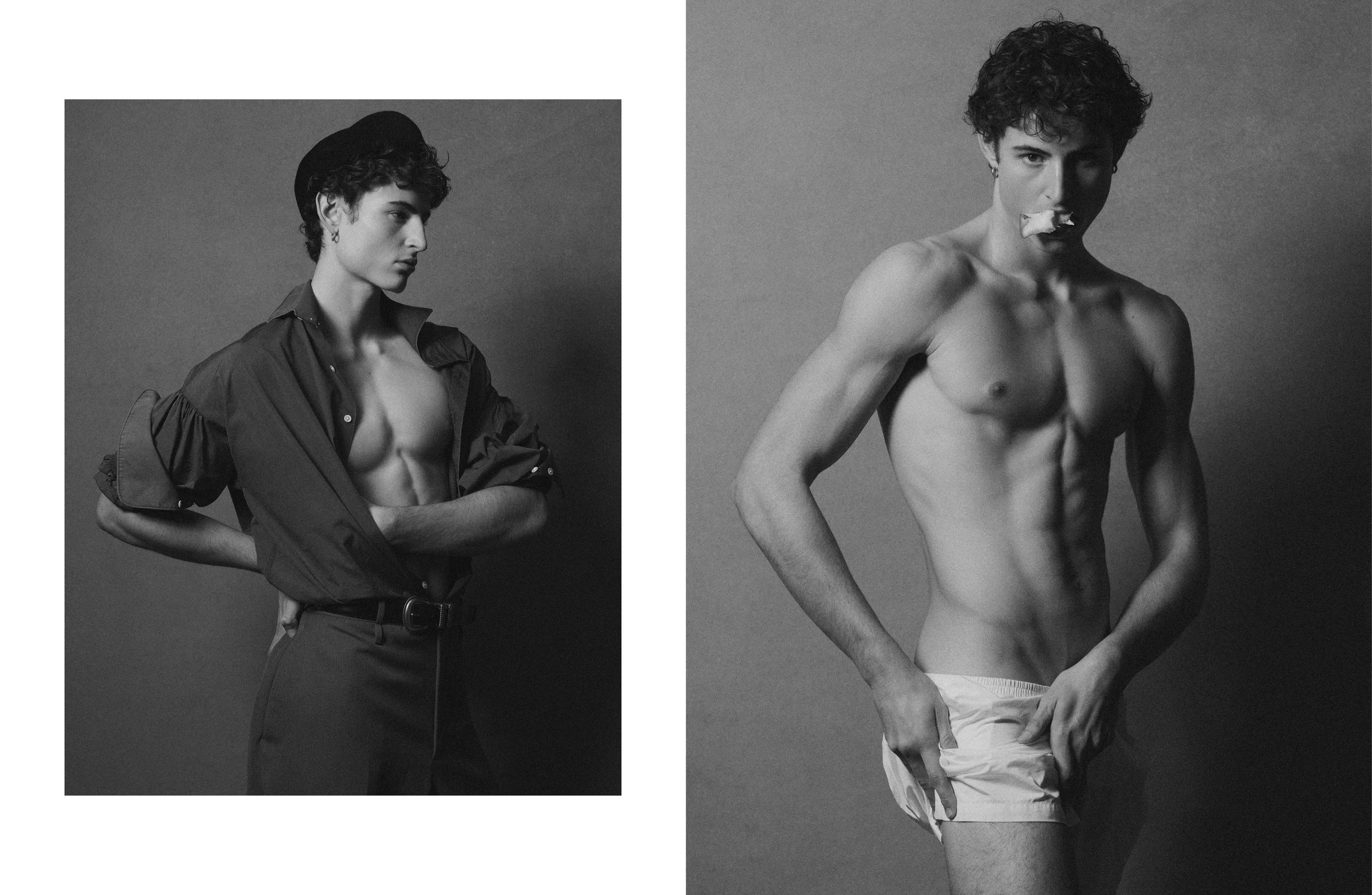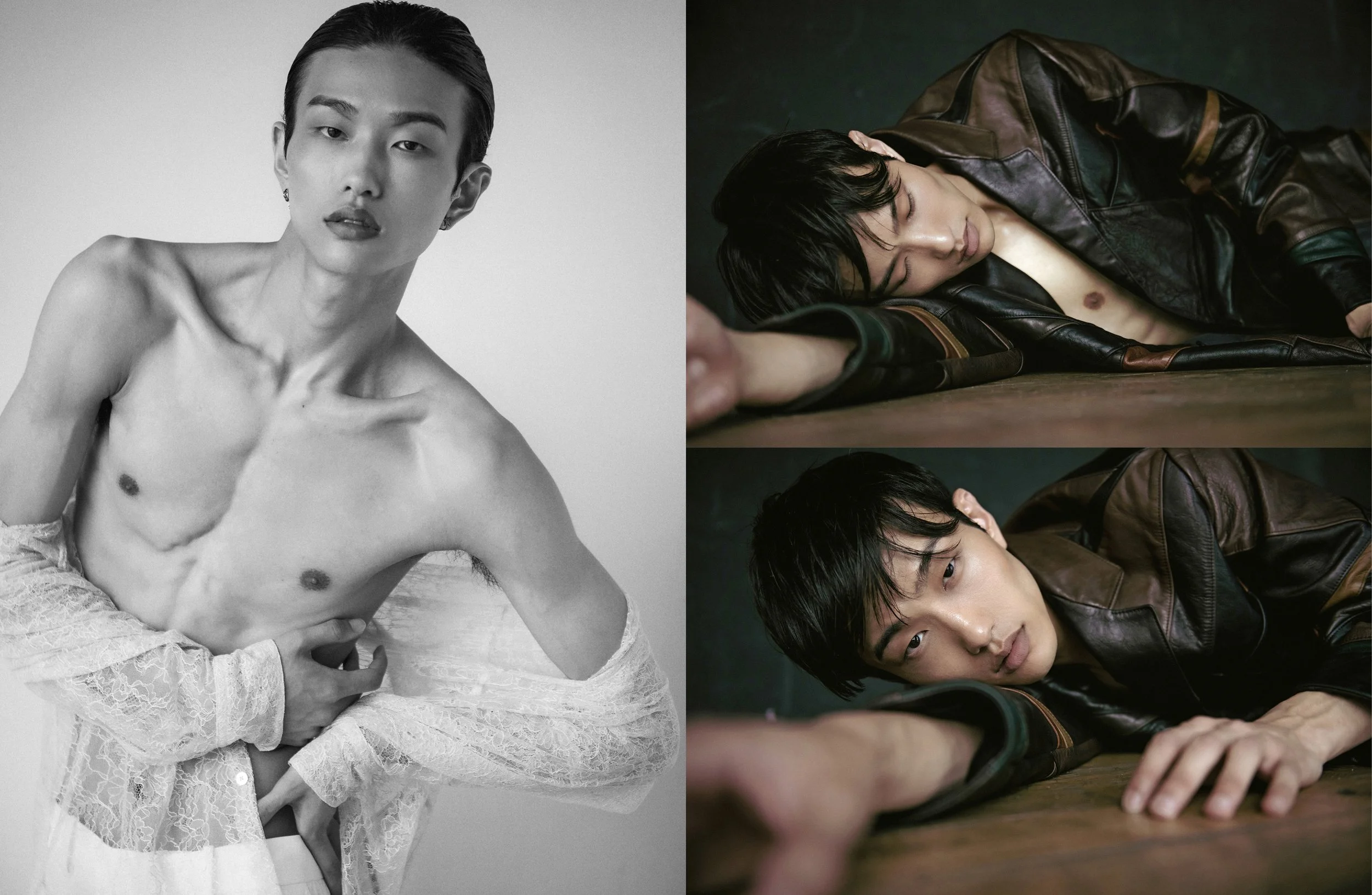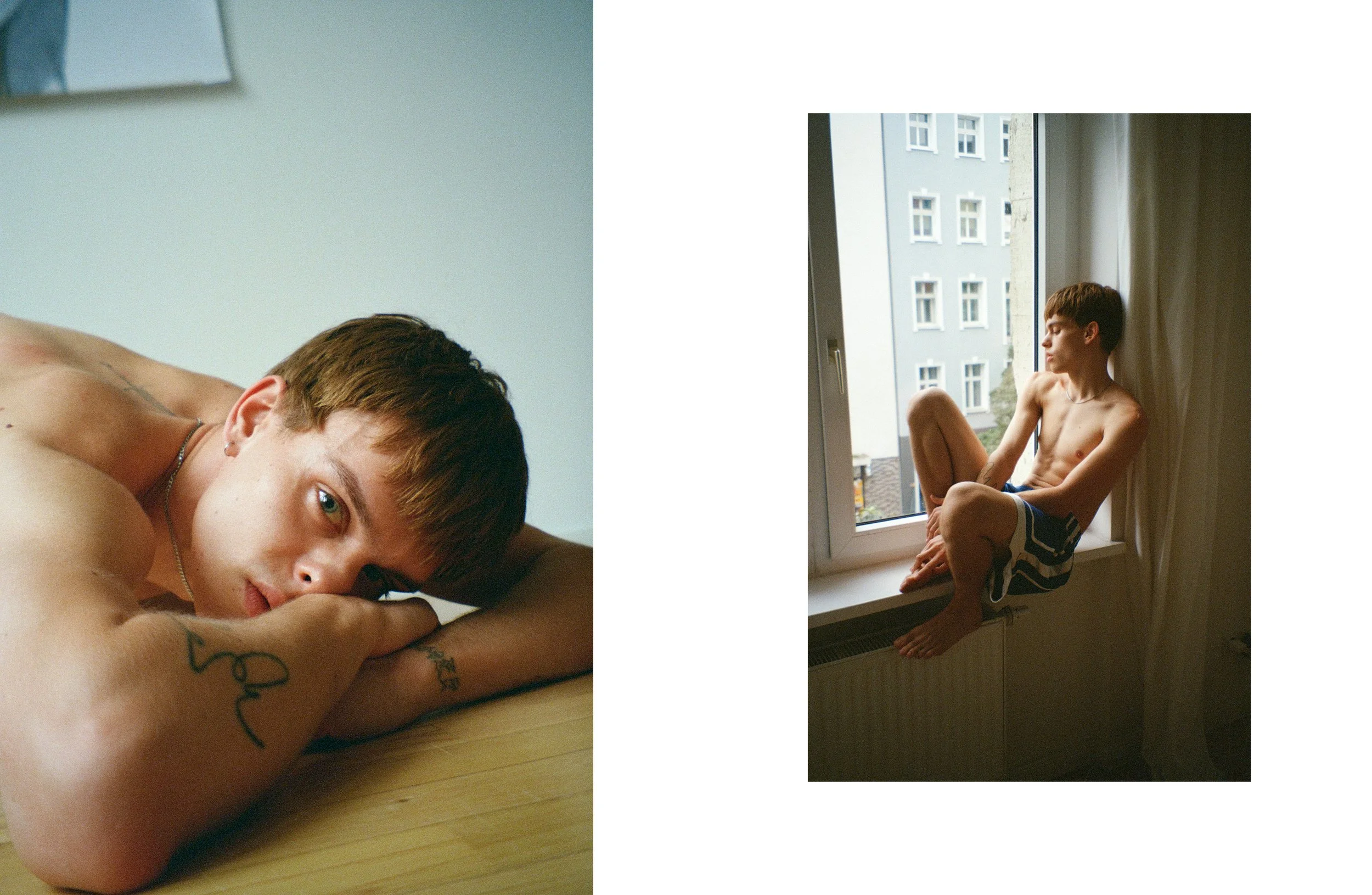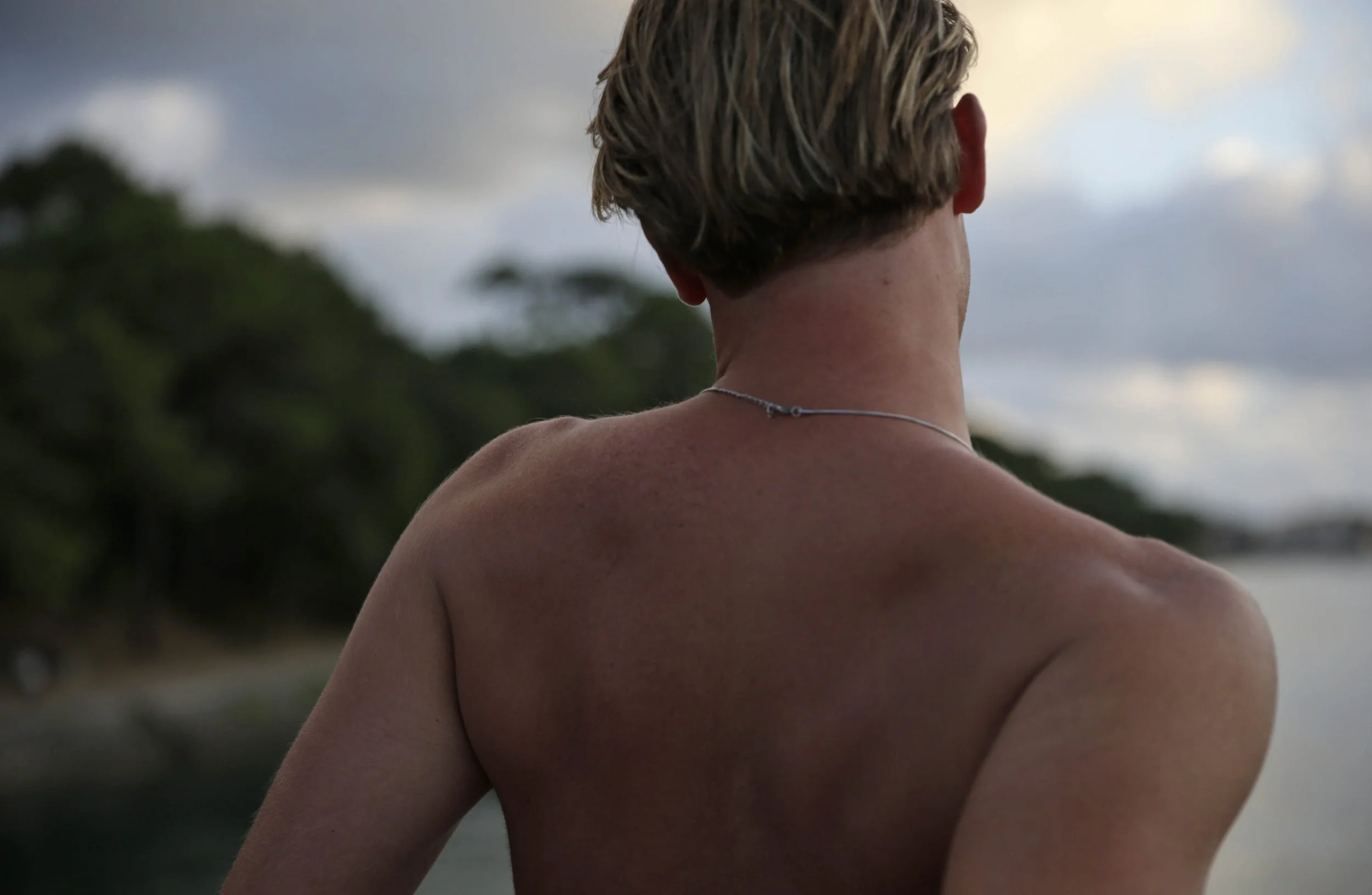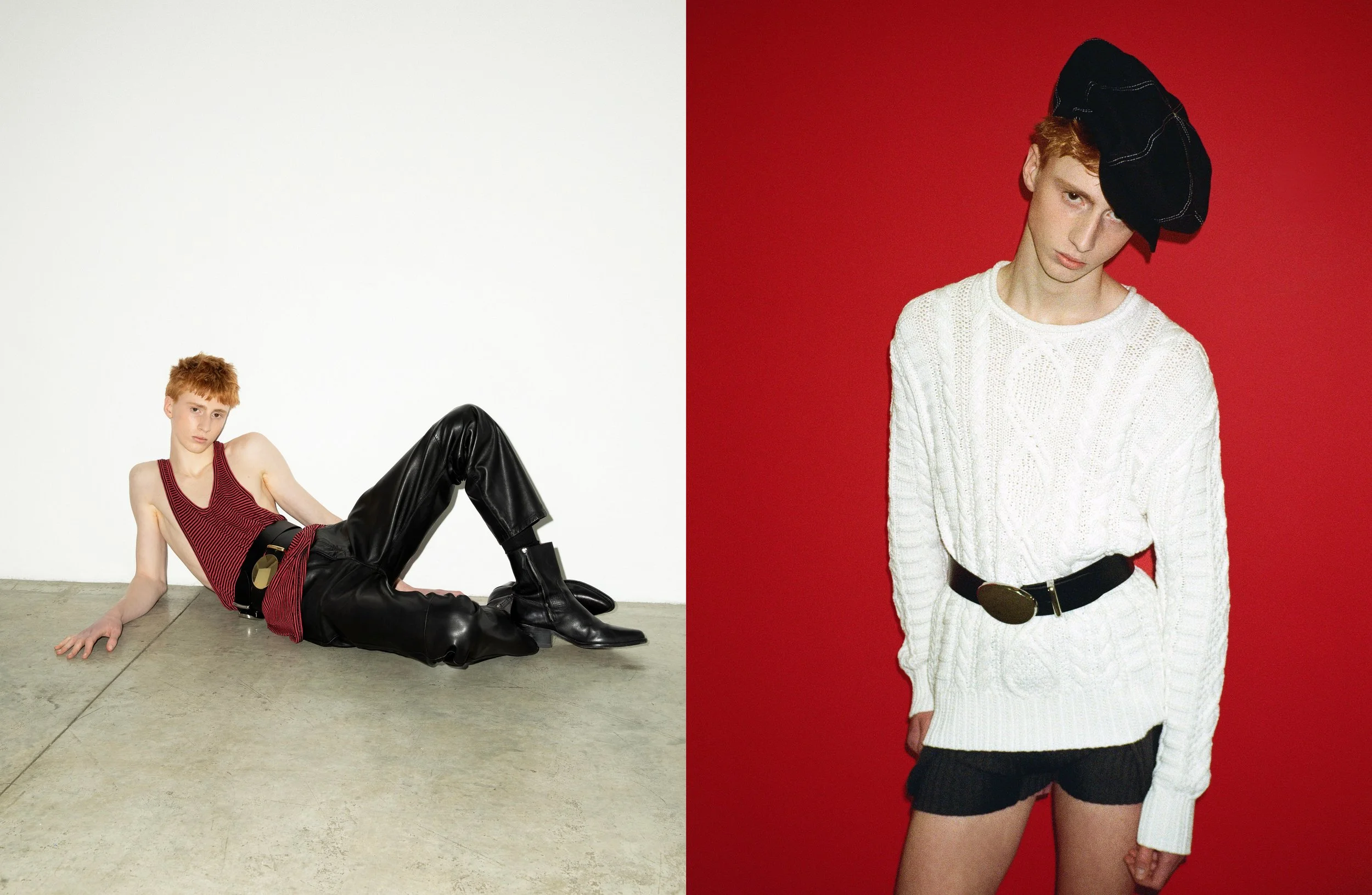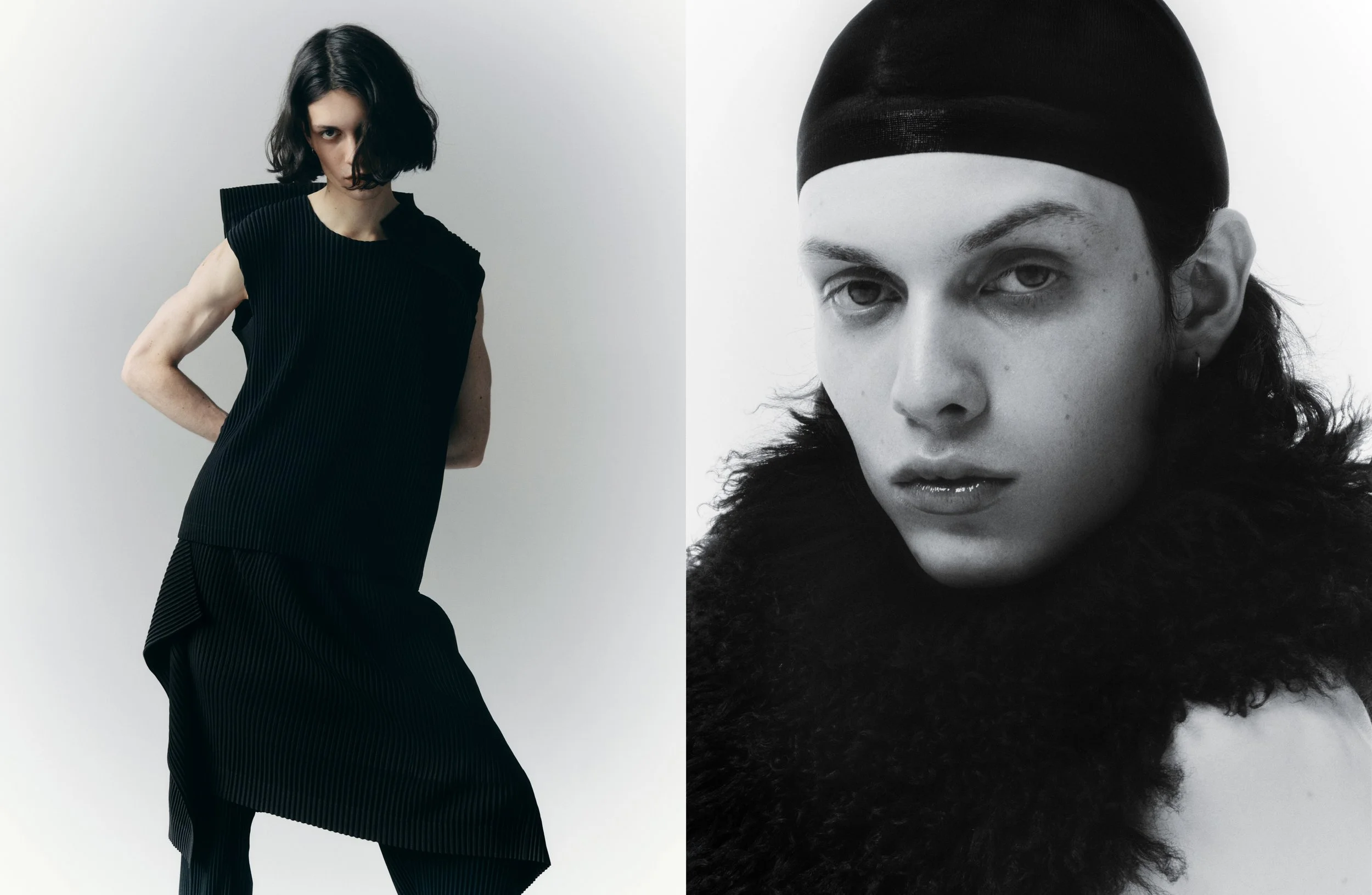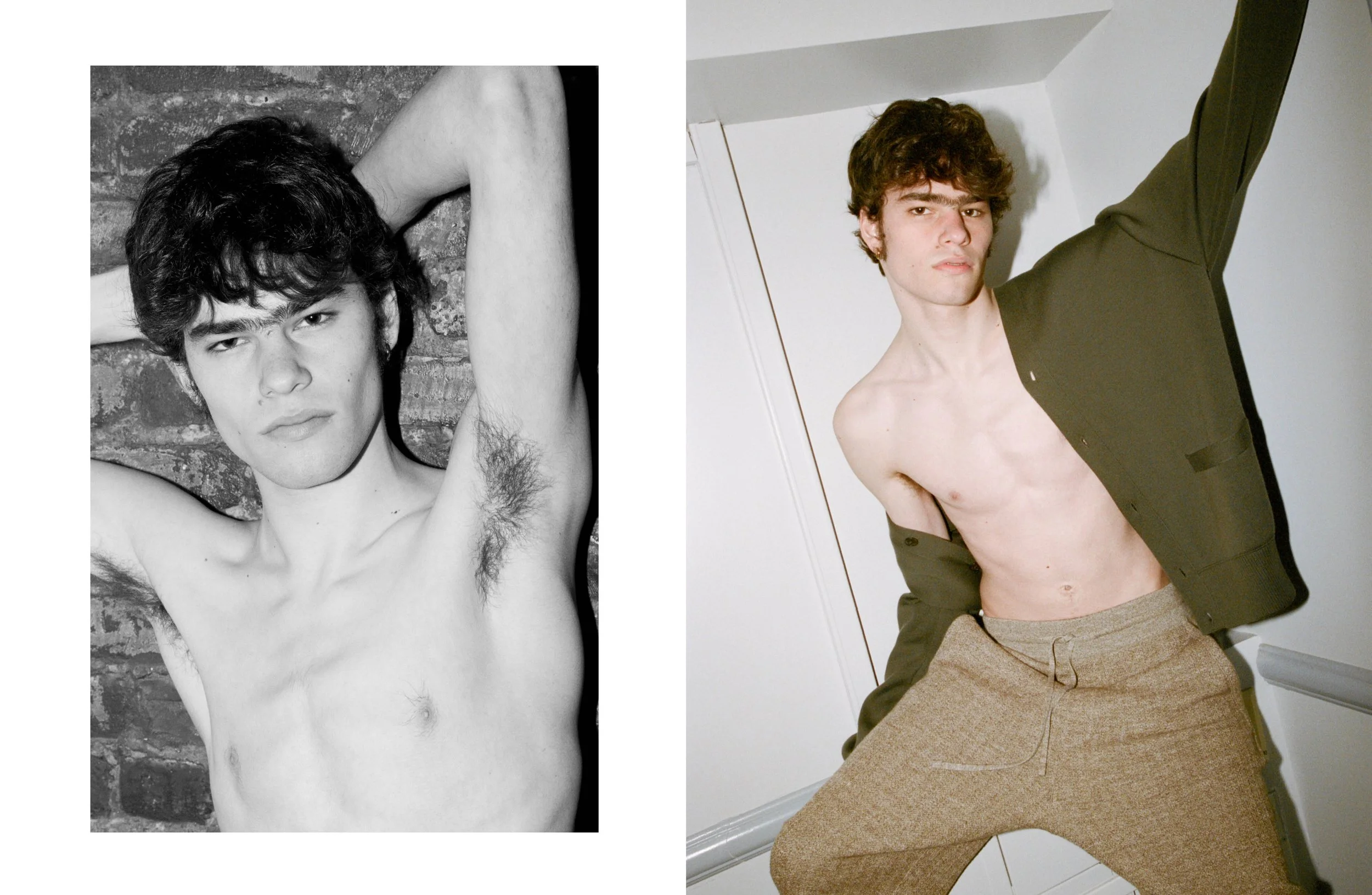NICHOLAS PINNOCK is a man of many personas, phases, eras, iterations, He’s played everyone from Jesus Christ and a young Nelson Mandela to a wrongfully convicted inmate turned attorney and a boxer in racially segregated America. And then there’s Nicholas the poet, who sees all facets of his artistic expression as part of a larger world of influence in which he’s eager to get us thinking and talking about our mental health.
As the British theatre, TV and film actor turns complex cop in his latest role in the crime mystery, Long Bright River, we have a heart to heart with him about feeling the energy of an audience, playing the congas and finding light in the darkness.
Full look Loro Piana, watch Omega
So, let’s talk about your latest project, the series Long Bright River. You play an injured cop (Truman Dawes), who teams up with your old partner to unravel who is killing vulnerable women in a Philadelphia neighbourhood. The storyline deals with weighty material but unlike other crime dramas, there’s more of a focus on the humanity of the characters in a community dealing with substance use and mental health issues. How did you prepare for the role?
Truman is your average good cop who genuinely cares about the neighbour he’s vowed to serve and protect. He turns out to be the only man that Mickey can rely on as the other men close to her have either abandoned her or abused her to some degree. Truman is the man she’s needed all her life. He’s consistent and true. It was important that we didn’t portray all cops with the same brush as the media. Where there are sinners, there are always saints. I held on to the goodness in community and the closeness of people that I have around me to find those aspects of him as a character in that world.
The series is based on the book by Liz Moore. Had you read it beforehand? And did that help in finding the character, or was it more challenging knowing it’s a different medium and although you want to pay respect to the book, you’ve got to leave it behind, but still find that connection?
I read the book once I was offered the project and fell in love with the whole atmosphere of this place that Liz had beautifully transported me to. Then I read the scripts, and it really did help, because she was involved in writing the series too, so you could feel the heart of the book in the adaptation. There’s the ease with which we follow and root for Mickey and the fact that she’s flawed. We see Truman through Mickey’s eyes in the book and in the series, we see him as his own entity. This very resilient community that I had very little knowledge of, was transported from book to set in a way that was beneficial in helping me find what I feel we needed for Truman. It was all in the page with very little for me to do but tell my part of the story.
Does the series stay true to the twists and turns of its source material?
The series is true to what it needs to be true to. It’s also unapologetic about the fact that’s it’s an adaptation and some things were changed to add to the broader and complimentary world that television can offer in a way a novel can’t.
You’re a mental health advocate yourself and ambassador for the charity MIND. I read that you’ve struggled with depression, and wondered where your relationship with examining your mental health comes from?
It was either spiral further into the darkness of my issues with ill mental health or examine them and figure out how I could find mental wellness. When you’re faced with suicide to be your only option, but you also don’t want to die and what you really want is peace, you look for all the ways to find it because if you don’t, that one option left will be the one you take. And I strongly believe that’s the same for most people in that situation. Even the ones that choose that final option. At the end, peace is the ultimate destination for the ones who find it through the exploration or the ones who find it having explored and still couldn’t see any other path heading there. Death isn’t the goal. Peace is. And I’m very grateful that I was able to acknowledge that, act and have the love and support around me to begin a journey of healing that has led me in that direction. I still have a way to go but I know I’ll get to a more manageable place than I’ve been in the past and where I am now.
Full look Dior
So, have you found with acting, through becoming all these different people, that it’s enabled you to embrace all aspects and sides of yourself —the beauty and the ugly, the darkness—to see and live the moments of joy?
Yes. And to see and live the moments of despair and turmoil also. These characters are a gift. I get to tap into areas of myself that I’m forced to delve into or there’s no truth to play, so it can get tricky at times when you’re on set and get utterly overwhelmed with the character and the two of you are fused for a moment. But it’s important to be aware of and understand that the character’s stuff isn’t my stuff, and that it’s beneficial to remove myself from whoever the “him” is that I’m playing so I don’t end up carrying shit that doesn’t belong to me but only feels like it does. I think a lot of actors go through this vicarious trauma and don’t realise it and that specific therapy is needed for them to deal with it in a way that general talking therapy can’t fully tackle.
You also write poetry. That can be a form of self-therapy, does it help putting your feelings on paper, does it make articulating yourself easier do you think?
Absolutely. Without a doubt! And so much so that I’d like to publish a book of poetry once I find the right agent and publisher. I had always written songs, poems and short stories at school, but it was through my severe struggles with ill mental health firstly in 2006, that I really started to write and write, and write… where I couldn’t stop at times, to relive some of the dark thoughts that come with CPTSD and depression.
Last year I was in a residential mental health facility for trauma and the writing therapy that they offered during my 6 weeks stay, was highly beneficial to a point where it ignited a new evolution in my writing of poetry that I couldn’t access before. There’s an instant separation and objective viewpoint that comes with expressing yourself on the page. Like centuries of thoughts, feelings and energy from the generations before you that gets released from your fingers allowing you to hold the world around you and feel the moment, for a moment – without being again encumbered by the boxing gloves that are wrapped around them, that you’ve had for longer than you can remember, in order to fight your way through another day that resembles a whole lifetime.
Left Full look Giorgio Armani, watch Omega
Right Full look Loro Piana, watch Mont Blanc
Does music help to translate those feelings too, either through listening and connecting to specific songs, or writing / making music yourself – and how does it play out in your work too, such as preparing for a role?
A lot of actors have playlists that are projects or character specific. I’m not one of them. I tend to listen to the ambient sounds around me to capture a feel for these things. The music and melodies find me in that way. Every now and then, especially if it’s a period piece, I’ll find music that is of the time and listen to it as a touchstone, if ever I need it.
In life, music is a must for me. I play percussion, mainly the conga’s and I sing. I love live music and go to concerts as often as I can. The energy of the band. The atmosphere of the crowd. The euphoria that you’re left with after. It’s magic.
One thing I’ve often heard musicians say when I interview them, is how that connection to their audience reminds them why they love what they do. Do you feel the same? Does having audiences connect and relate to your through your performances, help drive you in the next project?
Yes. For sure. In the theatre, when you are on stage, you can feel the energy of the audience. You tap into what they bring into the theatre as a collective entity. They are almost the final character in the piece, so we tend to feed off them in many ways. I don’t believe in the fourth wall. I like to be reminded that my audience is there. Let’s face it, without them, we wouldn’t even be there. I like to see and hear them be engaged with their responses. It’s fuel for me. And when on set, the crew are my audience as well as my colleagues. Their responses are just as valuable to gage if you’re in the right area of emotion for any given scene. So, when they come up to you and tell you how moving or funny or shocking or how it made them cry or that last scene or take was for them, it keeps me going and wanting to explore all the ways of continuing to move the audience. I never take it for granted that it’s a given.
Left Full look Loro Piana, sunglasses Mont Blanc
Right Full look Giorgio Armani, watch Omega
Full look Paul Smith, watch Omega
Out of all the characters you’ve stepped into, which one in terms of the atmosphere you’ve created to live in for a short while to really feel it, had the most impact on you, made you go to places you didn’t know you could go to – or is that one still to come?
Not including what I call “my apprenticeship years”, where I was figuring out who I was as an actor and taking parts for credits and to get noticed – I’d say every role that I’ve consciously chosen to either audition for and landed or have said yes to when offered.
They’ve all offered me some area of growth and it would be hard to single out just one, but my first real lead in a play that’s had a major impact for several reasons – including having to transform physically – was the role of boxer Jay Jackson, in a play by Marco Ramirez called The Royale. Marco is a drummer and there were percussive elements that he introduced in the play that we had to incorporate in the form of claps, which forced us to be creative. I loved it and I grew as an actor on that stage, and I look forward to the opportunity of working with Marco again.
With theatre, are you drawn to roles that give you, and perhaps the audience, a new perspective on a world that we think we know?
Theatre must challenge your perception of society. It must challenge your sense of morality. It must cause your thoughts and feelings on things that seem so fixed, to be shaken and disrupted so that even if it settles back to the same spot, it still can never be the same.
What’s more appealing to you, the role that you think you’re going to be good at or the role that scares you?
The one that scares me every single time. If it doesn’t, I’m not interested in playing it. I’m not able to grow or be better than my previous efforts if I’m not challenged in some significant way. I also want the audience to be challenged by me and it’s not possible for me to do that if I keep delivering performances that they’ve seen time and time again. Sure, some characters or performances may be similar or resemble each other, but I try not to let that happen often, and to make tweaks so the experience is sufficiently different for the viewer as much as it is for me. I like to transform as much as I can. Sometimes it’s a lot. Sometimes not as much. But ultimately the pull for me is finding the challenge in the role. Hence why I say no to roles a lot.
Left Full look Giorgio Armani
Right Shirt Eton Shirt, blazer, pants, & sweater Polo Ralph Lauren
This is a clichéd question, but if someone had said to you as a kid, “you’re going to be an actor,” would you have believed it?
If someone had said that I would have replied, “Yeah, I know”! I knew from a very young age what my calling was. And it was just that. A calling. I knew I’d be a performer, just not in which discipline. So, when I started performing professionally at 12, I made sure I was more than competent in all areas, dancing, singing and acting. And I’ve done all three at various points throughout my almost 40 years of being in the industry.
Yes, and that leads perfectly into my next question, about your 40th anniversary! – does it take you by surprise when you start doing the maths of how long you’ve been doing this, what’s changed most for you, what’s been the biggest lesson you’ve learned so far?
This September I’ll be 52, and in October will be the 40th anniversary. I don’t know where the time has gone. It often feels like yesterday that I had my first day as a lead on set in 1985. I’d say one of the things that has changed the most, is that there are more vehicles for young people to really shine and that’s wonderful. But another is less risks being taken by studios and producers, on new filmmakers, new actors, screen writers, so few indie projects, so few original scripts. There are so many blockbuster franchises and so many remakes. The last few decades, there’s been a decline of these wonderful ideas that producers were brave enough to back and support. Bring back raw, edgy not-sure-it’ll-make-any-money-but-I-love-it-and-I-believe-there’s-an-audience-out-there-that-will-too-so-fuck-it! type producers and creatives, with studios that can really make something special that will last not only a generation for their bold and unapologetic filmmaking, but will last a lifetime.
Speaking of being passionate about change, what about the world we’re living in, with it being what it is right now, what’s the future for you? What are you optimistic about?
The world is in flux and seems to be in a desperate place and this is where the escapism of art in all its forms will be vital. I’m producing now with the partners in my company (Silver Milk Productions), and I’m looking to move into directing also at some point but won’t give up acting. That’s still my first love. I have my sights on writing too. I’ve recently become a founding patron of The Liam Frances Dance Company and look on broadening my reach in other areas of the arts, including opening an art gallery and doing one last dance performance before my body decides it’s too old, to name but a few.
My optimism is in the power of humanity, the necessity of kindness and the unending love and support that only community can offer and provide… whatever that community may be.
Interview by Kate Lawson
Photography by Elliott Morgan
Fashion by Steven Huang
Grooming by Charlotte Yeomans using Tom Ford Beauty
Stylist’s assistant Harley Thompson
